
- How to – guides
- Skills List
- How to – guides
- North America
- South America

Work and Travel in Taiwan
Help us grow. share what you know about getting work in taiwan for travellers., volunteer and paid work opportunities in taiwan for travellers.
Taiwan is an island with a long and colorful history. Now visitors to this part of Asia are fast becoming enamored with Taiwan. With a complex claim to being the true rulers of the Chinese mainland, it’s a rather difficult political situation. But this won’t impact tourists who want to work and travel in Taiwan . Read through our travel guide to Taiwan to take advantage of the myriad of different projects available in the country right now. 1. Teach English in Taiwan Like the rest of the developed Asian countries, there’s a big demand for English teaching in Taiwan. Local people want to learn English so they can work around the world. There’s a great emphasis placed on education here. Native English speakers are able to pick up work in schools without too much trouble. Travel in Taiwan and work in a school or on a private basis. There are plenty of jobs across the country, but the majority of these will be found in the capital of Taipei. It’s also possible to find paid teaching work in Taiwan. 2. Work in Elderly Care in Taiwan Taiwan is experiencing a cultural change when it comes to the role of family and taking care of said family as they enter old age. It’s become such an issue that volunteering opportunities in Taiwan are now popping up all over the place in residential care homes. You don’t necessarily need to be qualified in order to work in these homes. Many volunteers are tasked with simply keeping the residents company. If you have any handyman skills, you can also work in homes in poorer areas, plying your skills. 3. Work in Restoration Work Taipei is known for its huge number of temples and museums. The problem is that most of them don’t get the funding they need from the government. It’s down to private investors to provide the funding and the expertise necessary to restore these sites to their former glory. If you want to work and travel in Taiwan, restoration work can be a great option if you’re looking to do something different. You’ll have the chance to do something out of the ordinary and help Taiwan retain its cultural heritage.
VOLUNTEER WORK VISA / PERMIT REQUIREMENTS FOR TAIWAN
Travel in Taiwan is simple for people from the majority of countries. Citizens of Canada, the US, the European Union (EU), the UK, Australia. New Zealand, Japan, and South Korea are able to enter the country for 90 days . This is a visa-on-arrival and all you have to do is fill out a form when you land. Canada and the UK have a special agreement with Taiwan that allows their citizens to extend their ordinary 90-day visa to 180 days when they have already landed . This is due to reciprocity agreements in place. Russian citizens are able to get a visa-on-arrival that lasts for 30 days. South Africans, Mexicans, Indians, and Chinese citizens must apply for a visa in advance . Take note that due to the political issues between Taiwan and the mainland, there are special restrictions in place for Chinese citizens.
SEASONAL BACKPACKER SKILLS NEEDED IN TAIWAN
Spring work.
Taiwan enjoys four distinct seasons. The spring season lasts until May and is when the country’s plum and cherry blossoms are in bloom. It brings a variety of tourists to the country. This is why it’s possible to find work in a guesthouse or hostel. You’ll be able to work in Taiwan with fellow travellers and enjoy getting to know one place for a longer period of time. The majority of these jobs involve payment in the form of free accommodation and food. It’s also the time to join conservation organisations to help protect the natural wonders of the country. It’s by far the best time of year for this as the temperatures are tolerable and you won’t experience as much rain.
SUMMER JOBS
The summer is an extremely trying time to work and travel in Taiwan. The problem is that the temperatures are exceedingly hot and humid. It also happens to be the typhoon season, which is why you can expect to see huge storms on a semi-regular basis. We recommend volunteering opportunities in Taiwan like working in residential care homes and English teaching. These types of projects will ensure you don’t have to worry about the impact of weather on your work.
Many people say that autumn is the ideal time of year to travel in Taiwan, and for good reason. The rains are winding down, the temperatures are warm but not too warm, and there’s lots of sunshine. It’s a great time to join historical conservation projects in the country. You’ll have the option of working in far off temples or hosting groups that visit these sites. All you need to partake in these projects is an interest in history and a willingness to work.
The winter season is pretty mild by European and North American standards. Frost and snow are uncommon in the urban areas. But if you’re not looking to suffer outside, we recommend referring to the ‘Summer’ section for examples of projects that are best taken on during the colder months of the year.
ATTITUDE TO FOREIGNERS WORKING OR VOLUNTEERING IN TAIWAN
Taiwan is a modern country on par with China, Japan, and South Korea. Expect to find all the modern comforts of home mixed with the natural wonders of the island. You’re not going to experience any problems volunteering or working in the country. You do need to be aware of the fact that there are serious issues between Taiwan and China. It’s not as simple as Taiwan wanting independence from China and China opposing it. Many local Taiwanese see themselves as the true rulers of China, dating back to the Chinese Civil War, when the nationalist government was deposed by the communists and fled to Taiwan. So it’s not as simple as it seems and you should avoid mentioning the issue when you visit the island. Do you want to work and travel in Taiwan this year?
Recent Contributors
- Edited on May 18 2021 by
- Edited on Jun 11 2019 by
- Edited on May 29 2019 by
If you have worked in Taiwan or live here. Instead of saying `That information is not right` Please sign up to Working Traveller by clicking here and update this page with your opinions on the subject and your views on what the barter points should be. If your a host, you will have a SEO link added to the page directly to your own web site so viewers can see who provided the information. If you are a traveller it will link to your profile.

WORKING TRAVELLER LTD 27, Lonsdale Rd, Blackpool, FY1 6EE, UNITED KINGDOM
Work and travel the world using your skills to gain work experience and references for a good job back home
Log in with your credentials, forgot your details.
Update May 10, 2024
Information for u.s. citizens in the middle east.
- Travel Advisories |
- Contact Us |
- MyTravelGov |
Find U.S. Embassies & Consulates
Travel.state.gov, congressional liaison, special issuance agency, u.s. passports, international travel, intercountry adoption, international parental child abduction, records and authentications, popular links, travel advisories, mytravelgov, stay connected, legal resources, legal information, info for u.s. law enforcement, replace or certify documents.
Before You Go
Learn About Your Destination
While Abroad
Emergencies
Share this page:
Travel Advisory July 11, 2023
Taiwan - level 1: exercise normal precautions.
Reissued after periodic review with minor edits.
Exercise normal precautions in Taiwan.
Read the Taiwan International Travel Information page for additional information on travel to Taiwan.
If you decide to travel to Taiwan:
- Follow the U.S. Department of State on Facebook and Twitter .
- Enroll in the Smart Traveler Enrollment Program (STEP) to receive Alerts and make it easier to locate you in an emergency.
- Review the security report for Taiwan from the Overseas Security Advisory Council.
- Prepare a contingency plan for emergency situations. Review the Traveler’s Checklist .
- Visit the U.S. Centers for Disease Control and Prevention (CDC) page for the latest Travel Health Information related to your travel.
Embassy Message
View Alerts and Messages Archive
Quick Facts
Valid throughout duration of stay
1 page per entry/exit stamp
Not required for stay of less than 90 days
None required. Taiwan’s Centers for Disease Control and Prevention (CDC) recommends travelers to Taiwan be vaccinated against Hepatitis A. Vaccination information can be found here .
Declare cash amounts over 100,000 New Taiwan Dollars (NTD), foreign currencies over 10,000 USD, or over 20,000 Chinese Yuan (RMB). Customs details are here.
Embassies and Consulates
The American Institute in Taiwan, Taipei Main Office 100 Jinhu Road, Neihu District Taipei 114017, Taiwan Telephone: +886-2-2162 2000 ext. 2306 Emergency After-Hours Telephone: +886-2-2162 2000 Fax: +886-2-2162 2239 Email: [email protected]
The American Institute in Taiwan, Kaohsiung Branch Office 5th Floor, No. 88, Chenggong 2nd Road, Qianzhen District Kaohsiung 806618, Taiwan Telephone: +886-7-335 5006 Emergency After-Hours Telephone +886-2-2162 2000 Fax: +886-7-338-0551 Email: [email protected]
The United States maintains unofficial relations with the people on Taiwan through the American Institute in Taiwan (AIT), a private nonprofit corporation, which performs U.S. citizen and consular services similar to those at embassies.
Schedule routine American Citizen Services appointments online. Appointments are available Monday through Thursday except on Taiwan and U.S. holidays .
Destination Description
See the U.S. Department of State’s Fact Sheet on Taiwan for information on U.S.-Taiwan relations.
Entry, Exit and Visa Requirements
If you wish to enter Taiwan as a tourist or short-term visitor (less than 90 days), you do not need a visa. No extensions or changes of status are permitted. For visa-waiver travel, your U.S. passport must be valid through the number of days you intend to stay. Six-month passport validity is not required.
If you plan to stay longer than 90 days or plan to work or reside in Taiwan, you need a Taiwan visa prior to traveling. Visit the website for the Taipei Economic and Cultural Representative Office (TECRO) in the United States for the most current visa information.
Taiwan and the United States both allow dual nationality. If you have dual Taiwan-U.S. nationality, you must enter/exit Taiwan on your Taiwan passport and enter/exit the United States on your U.S. passport.
See our website for information on dual nationality or the prevention of international child abduction .
Also see our Customs Information page .
Taiwan does not have any specific COVID-19 entry requirements for U.S. citizens.
Safety and Security
Potential for Civil Disturbances: Taiwan enjoys a vibrant democracy, and both spontaneous and planned demonstrations occur. Monitor media coverage of local and regional events and avoid public demonstrations.
Potential for Typhoons and Earthquakes: During the typhoon season (May through November), Taiwan’s Central Weather Bureau issues typhoon warnings an average of five times a year (of which, three to four normally make landfall) and heavy rainstorm alerts more frequently. Taiwan also has severe earthquakes. The most recent severe earthquakes included one that caused 2,000 deaths in 1999 and another that caused 117 deaths with widespread damage in 2016.
Disaster Preparedness:
- Follow the guidance of local authorities in the event of a disaster. See the National Fire Agency’s page for information on “ Disaster Responses .”
- See the U.S. Centers for Disease Control (CDC) website on how to prepare for an emergency.
- See also the Crisis and Disaster Abroad page of the Bureau of Consular Affairs website.
- When an emergency arises, we will post up-to-date instructions specific to the circumstances of the event on our website and send messages to U.S. citizens who have registered through the Department of State’s Smart Traveler Enrollment Program (STEP) .
Crime: There is minimal street crime in Taiwan, and violent crime is rare. Take normal safety precautions, such as avoiding travel after dark or in deserted/unfamiliar areas.
See the U.S. Department of State's and the U.S. Federal Bureau of Investigation (FBI)’s pages for information on scams.
Victims of Crime: U.S. citizen victims of sexual assault should contact the American Institute in Taiwan for assistance at +886-2-2162 2000. U.S. citizen victims of sexual assault should also seek medical attention and report to the police as soon as possible for help.
- Dial 113 to reach the Taipei Center for the Prevention of Domestic violence and Sexual Assault.
- Dial 110 to report crimes to the local police.
Remember that local authorities are responsible for investigating and prosecuting the crime.
See the U.S. Department of State’s website on help for U.S. victims of crime overseas , as well as AIT’s webpage for local resources .
- assist you in reporting a crime to the police.
- assist you with emergency needs that arise from the crime, such as finding shelter, food, or clothing.
- provide information to facilitate access to appropriate medical care.
- contact relatives or friends with your written consent.
- provide a list of local attorneys.
- provide information on victim’s compensation programs in the United States .
- explain financial assistance options, such as assistance available to return to the United States.
- replace a lost or stolen passport.
Domestic Violence: U.S. citizen victims of domestic violence should call 113 for emergency assistance and dial 110 for an island-wide toll-free hotline. Dial 113 to reach the Taipei Center for the Prevention of Domestic Violence and Sexual Assault. U.S. citizen victims of domestic violence may also contact the American Institute in Taiwan for assistance at +886-2-2162 2000.
Domestic violence is considered a crime in Taiwan. Report to police and keep written records of all incidents. Preserve evidence such as medical records documenting injuries, photos of injuries, police records, and damaged clothing and weapons used against you. If you have a court-issued restraining order, present this to the police for use in the arrest of the offender.
Local Laws & Special Circumstances
Criminal Penalties: You are subject to local laws. If you violate local laws, even unknowingly, you may be expelled, arrested, or imprisoned.
Some laws are also prosecutable in the United States, regardless of local law. See crimes against minors abroad and the U.S. Department of Justice website.
Arrest Notification: If you are arrested or detained, ask police or prison authorities to notify the American Institute in Taiwan (AIT) immediately.
- The American Institute can provide a list of English-speaking lawyers .
- Taiwan authorities typically do not permit foreigners accused of crimes to leave Taiwan while legal proceedings are ongoing.
- Penalties for illegal drug possession, use, or trafficking are severe, with long jail sentences and heavy fines.
- Taiwan also has the death penalty for certain violent crimes and drug offenses.
- See the U.S. Department of State’s webpage for further information.
Labor Disputes:
- Avoid labor disputes by establishing all terms and conditions of employment or sponsorship in the labor contract at the beginning of your employment.
- If the dispute cannot be resolved directly with your employer, the American Institute can provide a list of English-speaking lawyers .
Customs Regulations: Taiwan has strict regulations on importing/exporting firearms, antiquities, medications, currency, and ivory. Contact the Taipei Economic and Cultural Representative Office (TECRO) in Washington, D.C., or the nearest Taipei Economic and Cultural Office (TECO) in the United States for specific information regarding customs requirements . See also customs regulations .
Dual Nationality and Compulsory Military Service: Taiwan has compulsory military service for Taiwan males between the ages of 18 and 36. This includes dual U.S.-Taiwan citizens who enter Taiwan on their U.S. passports . Before you travel, contact the Taipei Economic and Cultural Representative Office (TECRO) in Washington, D.C., or the nearest Taipei Economic and Cultural Office (TECO) in the United States to determine your military service status.
Faith-Based Travelers: See our following webpages for details:
- Faith-Based Travel Information
- International Religious Freedom Reports
- Country Reports on Human Rights Practices
- Hajj Fact Sheet for Travelers
- Best Practices for Volunteering Abroad
Health Screening Process: To detect and prevent the spread of diseases, Taiwan scans the body temperature of all arriving passengers with an infrared thermal apparatus. Symptomatic passengers are required to fill out a form and may need to give an onsite specimen or see local health authorities. See also the U.S. Centers for Disease Control and Prevention (CDC) website .
Judicial Assistance: Authorities on Taiwan provide judicial assistance in response to letters rogatory from foreign courts in accordance with Taiwan's "Law Governing Extension of Assistance to Foreign Courts." For further information, please go to the American Institute in Taiwan (AIT)’s website .
LGBTQI+ Travelers: There are no legal restrictions on same-sex sexual relations or the organization of lesbian, gay, bisexual, transgender, queer, and intersex (LGBTQI+) rights events in Taiwan. Taiwan law prohibits education and employment discrimination on the basis of sexual orientation. On May 24, 2019, Taiwan legalized same sex marriages upon registration with a local household registration office in Taiwan. Same sex marriages from other countries are recognized in Taiwan. LGBTQI+ individuals may still face lack of tolerance, particularly in areas outside the capital and largest city Taipei. See Section 6 of our Human Rights Practices in the Human Rights Report for Taiwan and read our LGBTQI+ Travel Information page .
Travelers Who Require Accessibility Assistance: Taiwan law prohibits discrimination against persons with disabilities and sets minimum fines for violations. By law, new public buildings, facilities, and transportation equipment must be accessible to persons with disabilities. See Persons with Disabilities in the Human Rights Report for Taiwan (2022) .
Students: See our U.S. Students Abroad page and FBI travel tips .
Women Travelers: If you are a woman traveling abroad, please review our travel tips for Women Travelers .
Taiwan has modern medical facilities, with state-of-the-art equipment available at many hospitals and clinics. Physicians are well trained, and many have studied in the United States and speak English. Hospital nursing services provide medication and wound care but generally do not provide the daily patient care functions found in U.S. hospitals. Taiwan requires masks in healthcare facilities and ambulances to prevent the spread of diseases, including COVID-19.
For emergency services in Taiwan, dial 119.
Ambulance services are
- widely available;
- have emergency equipment and supplies;
- and are staffed by trained medical personnel.
We do not pay medical bills . Be aware that U.S. Medicare/Medicaid does not apply overseas. Taiwan hospitals and doctors do not accept U.S. health insurance.
Medical Insurance: Make sure your health insurance plan provides coverage overseas. Most care providers overseas only accept cash payments. See our webpage for more information on insurance overseas. Visit the U.S. Centers for Disease Control and Prevention (CDC) website for more information on type of insurance you should consider before you travel overseas.
We strongly recommend supplemental insurance to cover medical evacuation.
Always carry your prescription medication in original packaging, along with your doctor’s prescription. Check with the Taiwan Ministry of Health and Welfare to ensure the medication is legal in Taiwan.
Vaccinations: Be up to date on all routine vaccinations recommended by the U.S. CDC . Vaccinations are available at all major Taiwan hospitals.
Dengue Fever: In recent years, Taiwan has seen cases of dengue fever, a virus common in subtropical regions that is spread through mosquito bites. There is currently no vaccine or medicine to prevent dengue. Travelers can protect themselves by preventing mosquito bites. For information on how to reduce the risk of contracting dengue, please visit the U.S. CDC website .
COVID-19: Major Taiwan healthcare facilities have COVID-19 testing capabilities and can administer FDA-approved COVID-19 vaccines.
Air Quality: Visit AirNow Department of State for information on air quality at U.S. Embassies and Consulates.
The American Institute in Taiwan does not endorse or recommend any specific medical provider or clinic.
For further health information :
- World Health Organization (WHO)
- U.S. Centers for Disease Control and Prevention (CDC)
Travel and Transportation
Road Conditions and Safety: Road conditions, lighting, and traffic safety in cities and on major highways are generally good. Roads in major cities are generally congested. Be alert for the many scooters and motorcycles that weave in and out of traffic. Motor scooters are common throughout the island. Be alert for scooters when stepping out of public buses or exiting a car. Exercise caution when crossing streets because many drivers do not respect the pedestrian's right of way. Be especially cautious when driving on mountain roads, which are typically narrow, winding, and poorly banked, and which may be impassable after heavy rains. For example, Taiwan’s central cross-island highway is meandering and often has poor visibility. Exercise caution when driving on highways.
Please see AIT’s website for more details on Driving in Taiwan .
Traffic Laws: Passengers in all vehicles, including taxis, are required by law to wear seatbelts. When exiting a vehicle, you are legally required to ensure that no motor scooter, bicycle, or other vehicle is approaching from behind before opening the door. You will be fully liable for any injuries or damages if you fail to do so. Do not turn right on a red traffic signal. It is illegal to use a mobile phone while driving without a hands-free kit in Taiwan. The legal limit for alcohol in the bloodstream of drivers in Taiwan is 15 mg per 100 ml of blood (0.03% BAC). This limit is strictly enforced. It is useful to have proof of car insurance and proof of ownership of the vehicle. On-the-spot fines are very common for minor traffic offences in Taiwan and are fixed for each offense. You will be told where to pay the fines and within what period of time. For more serious driving offenses, you will receive a court appearance.
Standard international driving laws apply with a few exceptions:
- You must have a warning triangle in your car to use if you break down or are involved in an accident.
- You cannot turn on a red light unless indicated.
- Many drivers run red lights, especially just after they change.
In an emergency:
- If you have a problem with your car, call the number on the rental documents or attached to the windscreen of your car.
- In the event of an accident, you should call the police “110” and medical assistance “119.” Provide the police with all the important information including the type of accident, details of vehicles involved and if there are any injuries or fatalities. The second call you should make is to your insurance company.
- You will need a police report for your insurance company. While waiting for the police, take photographs of the scene and take the names, addresses and telephone numbers of any witnesses. Do not move the vehicles unless it is necessary for safety reasons.
- Police will not ask for bribes.
- Police will ask parties involved in the traffic accident to do an alcohol test. This is standard operating procedure.
- If riding a motor scooter, you must wear a helmet.
For specific information concerning Taiwan’s driver’s permits, vehicle inspection road tax, and mandatory insurance, contact the Taipei Economic and Cultural Representative Office (TECRO) in Washington, D.C., or the nearest Taipei Economic and Cultural Office (TECO) in the United States.
Public Transportation: Public transportation is cheap, convenient, and generally safe. Uber is widely available for use. Taxis and buses may swerve to the side of the road to pick up passengers with little notice or regard for other vehicles.
Please refer to our Road Safety page for more information. Refer also to Taiwan’s Road Traffic Safety Portal .
Aviation Safety Oversight: The U.S. Federal Aviation Administration (FAA) has assessed Taiwan’s Civil Aeronautics Administration (CAA) as being in compliance with International Civil Aviation Organization (ICAO) aviation safety standards for oversight of Taiwan's air carrier operations. Further information may be found on the FAA’s Safety Assessment Page .
Maritime Travel: Mariners planning travel to Taiwan should check for U.S. maritime advisories and alerts at the U.S. Department of Transportation (DOT) Maritime Security Communications with Industry (MSCI) web portal. Information may also be posted to the U.S. Coast Guard Homeport website , and the U.S. National Geospatial-Intelligence Agency (NGA) Navigational Warnings website .
For additional travel information
- Enroll in the Smart Traveler Enrollment Program (STEP) to receive security messages and make it easier to locate you in an emergency.
- Call us in Washington, D.C. at 1-888-407-4747 (toll-free in the United States and Canada) or 1-202-501-4444 (from all other countries) from 8:00 a.m. to 8:00 p.m., Eastern Standard Time, Monday through Friday (except U.S. federal holidays).
- See the State Department’s travel website for the Worldwide Caution and Travel Advisories .
- Follow us on Twitter and Facebook .
- See traveling safely abroad for useful travel tips.
Review information about International Parental Child Abduction in Taiwan . For additional IPCA-related information, please see the International Child Abduction Prevention and Return Act ( ICAPRA ) report.
Travel Advisory Levels
Assistance for u.s. citizens, learn about your destination, enroll in step.

Subscribe to get up-to-date safety and security information and help us reach you in an emergency abroad.
Recommended Web Browsers: Microsoft Edge or Google Chrome.
Check passport expiration dates carefully for all travelers! Children’s passports are issued for 5 years, adult passports for 10 years.
Afghanistan
Antigua and Barbuda
Bonaire, Sint Eustatius, and Saba
Bosnia and Herzegovina
British Virgin Islands
Burkina Faso
Burma (Myanmar)
Cayman Islands
Central African Republic
Cote d Ivoire
Curaçao
Czech Republic
Democratic Republic of the Congo
Dominican Republic
El Salvador
Equatorial Guinea
Eswatini (Swaziland)
Falkland Islands
France (includes Monaco)
French Guiana
French Polynesia
French West Indies
Guadeloupe, Martinique, Saint Martin, and Saint Barthélemy (French West Indies)
Guinea-Bissau
Isle of Man
Israel, The West Bank and Gaza
Liechtenstein
Marshall Islands
Netherlands
New Caledonia
New Zealand
North Korea (Democratic People's Republic of Korea)
Papua New Guinea
Philippines
Republic of North Macedonia
Republic of the Congo
Saint Kitts and Nevis
Saint Lucia
Saint Vincent and the Grenadines
Sao Tome and Principe
Saudi Arabia
Sierra Leone
Sint Maarten
Solomon Islands
South Africa
South Korea
South Sudan
Switzerland
The Bahamas
Timor-Leste
Trinidad and Tobago
Turkmenistan
Turks and Caicos Islands
United Arab Emirates
United Kingdom
Vatican City (Holy See)
External Link
You are about to leave travel.state.gov for an external website that is not maintained by the U.S. Department of State.
Links to external websites are provided as a convenience and should not be construed as an endorsement by the U.S. Department of State of the views or products contained therein. If you wish to remain on travel.state.gov, click the "cancel" message.
You are about to visit:

Visas and Work Permits — 12 min
Work permits and visas in Taiwan: an employer’s guide
If you’re looking to hire or relocate employees to Taiwan , you have to ensure they have the proper legal status to work there. You’ll need to obtain the correct work permits and visas and comply with immigration rules while you:
Employ a foreign national in Taiwan
Hire a candidate in Taiwan without owning a local entity
Relocate an existing employee to Taiwan
Support a digital nomad who wants to work in Taiwan.
An employer of record (EOR) like Remote can handle all the processes involved in international employment — from onboarding, benefits, and payroll, to compliance with tax regulations and immigration laws.
The importance of immigration compliance in Taiwan
Which workers need a right-to-work check in taiwan, do non-citizens need a work visa or work permit in taiwan, what are the eligibility requirements for a work visa in taiwan, what are the long-stay visa types in taiwan, how do you get a work visa for taiwan, what is the process for employee work visa sponsorship in taiwan, what are the visa requirements for digital nomads in taiwan, how remote makes compliance in taiwan so much easier.
In this guide, we’ll explain how you can get a work visa in Taiwan, the long-stay visas available, and how Remote’s EOR can help you with compliance while hiring abroad.
With the rise of remote working and digital nomadism , governments are increasingly enforcing legislation to ensure that individuals don’t get away with working on a tourist visa. Working on a tourist visa is often illegal.
Taiwanese employees and residents are expected to pay various taxes and social security contributions that fund statutory benefits like health insurance for all Taiwanese residents. It is essential to obtain the correct Taiwan work visa requirements and work permits to avoid violating local labor laws. Employees working without the proper work permit or visa may face consequences of penalties, fines, or even jail time.
Remote’s employer of record lets you easily hire remote employees to grow your international team. In addition, Remote takes care of HR tasks and global payroll for your international employees so you can focus on expanding your business and completing quality work. Partnering with an employer of record like Remote ensures you have all the necessary paperwork to comply with all local labor laws.
Get your Remote Relocation Guide
Learn how to simplify your planned relocation with this walkthrough guide. We outline the key steps for you and your employer to enable a compliant, efficient, and hassle-free move.

You must obtain a work permit to work in Taiwan as a non-citizen. The Taiwanese government has put in several requirements that individuals must meet to qualify for a work permit:
Have work experience in the relevant field for a minimum of five years.
Must currently work for a company or have a job offer.
Have established an employment contract in writing with the company.
Makes a salary that meets the minimum salary requirements.
The Taiwanese government only gives out work permits to professionals in specific industries .
Yes. If you are a non-citizen, or foreign national, who wants to work in Taiwan, you must obtain the following:
Taiwan work permit
Taiwan work visa.
Taiwan residence permit, officially known as Alien Resident Certificate (ARC)
An individual requires a Taiwan work permit to work in the country. The employer must get a Taiwan work permit for a foreign employee they plan to hire. Employers can apply for their employee’s work permits online, in person, or by registered mail to the Workforce Development Agency (WDA) of the Ministry of Labor. The work permit lasts six months and can be extended up to three years.
Once the employer has obtained a work permit for their employee, then depending on where the employee is currently living, they have two options:
Apply for a Taiwan work visa (if the individual is abroad)
Apply for a Taiwan residence permit (if the individual is already in Taiwan on a visitor visa)
The Taiwan visitor visa is required for short-term stays of up to 90 days for tourism, social visits, business, attending conferences and events, and other approved purposes unrelated to paid employment. Individuals can use a Taiwan visitor visa once or multiple times within three to five years.
A Taiwan work visa allows individuals not currently living in Taiwan to travel to Taiwan for employment. The key can be used for a single entry or multiple entries, and may last from three months to one year. Taiwan work visa requirements include submitting an application and other required documents to the Taiwanese Bureau of Consular Affairs in their home country.
Suppose the employee is already living in Taiwan under a different visa. They can convert it into a Taiwan work visa through the Bureau of Consular Affairs. The employee must apply at least eight days before the expiration of the current visa.
Taiwan resident permit (Alien Resident Certificate)
Even though the Taiwan work permit allows individuals to work and the Taiwan work visa allows entry into the country, individuals cannot stay in Taiwan longer than 90 days unless they have a valid Taiwan resident permit. The Taiwan resident permit is officially called an Alien Resident Certificate (ARC). Workers must apply for this resident permit from one of the Taiwan National Immigration Agency’s local service centers.
To obtain a Taiwan resident permit, an individual must apply for it within 15 days of entry into Taiwan. The resident permit can be issued for up to three years, and it’s renewable.
After the work permit is approved, an individual can apply for a Taiwan work visa.
If the employee is already in Taiwan and has a valid short-term visa, they can convert it into a Taiwan work visa through the Taiwanese Bureau of Consular Affairs . The employee must apply at least eight days before the expiration of the current visa.
If the employee is not living in Taiwan, they must apply for a Taiwan work visa through the Taiwanese Bureau of Consular Affairs in the country where they currently reside.
In some situations, officers from the consular will require an in-person interview with the employee. Once the consular approves the application, it will issue the visa and return the passport to the individual. Employees not already in Taiwan can then make arrangements to travel to the country.
In Taiwan, long-term visas typically fall under the umbrella classifications of a Taiwan resident visa, Taiwan resident permit, or officially an Alien Resident Certificate. The various long-term visas are for foreigners who want to stay in Taiwan for longer than 90 days for a specific purpose.
The long-stay visa types include the following:
Taiwan work visa. This visa is issued to foreigners who would like to work as an employee in Taiwan. Employees will also need a work permit, which their employer must obtain.
Taiwan student visa. This visa is for foreigners who wish to study in a Taiwanese educational institution. A school or university in Taiwan must have accepted the student already before they can apply for this visa.
Taiwan family reunification visa. This visa is for individuals who want to join a family member who is a Taiwanese resident. The family member may include a spouse, parent, or child.
Taiwan entrepreneur visa. This visa is for foreigners who intend to set up a business in Taiwan. The Taiwanese government added this visa in 2015 to attract foreign entrepreneurs to engage in Taiwan’s economy and to foster innovation and entrepreneurship. The Investment Commission of the Ministry of Economic Affairs of Taiwan will determine the candidate’s eligibility by examining their funding, patents, and education before issuing this visa.
Taiwan working holidays visa. This visa is issued to students or recent graduates aged 18 to 30 from countries with a Working Holiday Scheme established with Taiwan. This visa expires in one year and allows a visitor to stay in the country for 180 days.
Taiwan digital nomad visa. Officially known as the Taiwan Employment Gold Card, this visa is issued to foreign digital nomads who want to work remotely from Taiwan.
Before applying for a work visa, employees will first need to complete a medical examination and get a health certificate. The certificate must be from a hospital appointed by the Centers for Disease Control of the Ministry of Health and Welfare of Taiwan. Employees who receive a health certificate from a non-Taiwanese hospital must have it legalized by a Taiwanese diplomatic mission.
Then, employees must apply to the Taiwanese Bureau of Consular Affairs. The application must include the following documents:
Completed work visa application form
A passport that is valid for at least another six months
Two color photographs that are passport-sized and have a white background (taken in the last six months)
Approved Taiwan work permit
Certificate of health conducted within the past three months
Any other documents related to the employee’s profession
Identification documents for a spouse or children with the employee
Employees looking to convert their existing visa into a Taiwan work visa must follow the same application process as above. They must submit their application at least eight days before the short-term visa expires. The Taiwanese government usually issues work visas in 30 business days.
To get a Taiwan work visa, employers must apply for a work permit on their employee’s behalf. The employer must indicate whether the worker is specialized or technical or a managerial employee. There are stricter requirements to hire the latter.
The employer must meet specific capital requirements to obtain a work permit for its employees. That depends on factors such as how long the company has been operational. Companies may also qualify through other means, such as having:
Commission revenue of at least $400,000 in import and export in the previous year.
Research and development centers or operational headquarters approved by the Taiwanese government.
A representative office approved by the Taiwanese government.
We have made significant economic contributions to Taiwan.
In addition, the employer must submit copies of the following documents with the Taiwan work permit application :
Corporate income tax return
Company representative’s identification cards or passports
Company’s registration certification, business registration, and business permits
Employee’s individual income tax statement for the current year
Employee’s identification cards or passports
Employee’s education diploma and proof of authentication by a Taiwan embassy
Employee’s medical examination report
Employment contract
Letter of foreign investment approval
Work experience certificate
Any applicable fee
After the employer has secured the employee’s work permit, the employee can apply for a Taiwan work visa.
Taiwan does not have a visa designed for digital nomads. Instead, digital nomads may apply for the Taiwan Employment Gold Card . It is a combination of a work permit, resident permit, and visa for skilled professionals. With the Gold Card, digital nomads can stay in Taiwan for one to three years. They can apply for permanent residence after five years.
The Gold Card applies to freelancers and self-employed individuals who work and live in Taiwan and make at least $5,700 a month. This card also entitles individuals to work for any (or multiple) Taiwanese companies or start their own enterprises.
Digital nomads must apply for a Gold Card online through the official Taiwan Employment Gold Card website. The application process is as follows:
Apply online through the Foreign Professionals Online Application Platform website. You will have to create an account.
Make sure to write your name on the application form exactly as it appears on the passport.
Foreign nationals should upload the following documents: a passport, the relevant visa, proof of working as a foreign professional specialist, and the Alien Resident Certificate.
There will be a review process once the application has been accepted. If the application is approved, the individual must bring their passport in for an inspection by the Bureau of Consular Affairs. The process usually takes a week.
Once the application and passport are approved and processed, workers will get their Gold Card.
Whether the employee wants to move to Taiwan long-term or wants to work there temporarily as a digital nomad, you’ll have to help them obtain a work permit from the Taiwanese government.
The immigration and relocation process can be stressful for both the employee and the employer. Each case is unique, and working with an employer of record like Remote can help you with visas, immigration, compliance, and more. From avoiding permanent establishment risks to paying local taxes, Remote can make it simple and easy to hire in Taiwan.
Remote helps you easily manage relocation with speed, accuracy, and compliance. For more information on how we can help, check out our relocation guide . It will give you an overview of the steps to relocate your employees, including how to stay compliant, tax implications, and how to streamline the process.
For specific questions about sponsoring employees in Taiwan, contact our Mobility experts , who can advise you on the best path forward.
Hire, pay, and manage relocation for your global team
Create an account with G2’s top-ranked multi-country payroll software and start onboarding your first employees in minutes.

Subscribe to receive the latest Remote blog posts and updates in your inbox.
You may also like

Global Payroll — 6 min
How to manage pay advances for your employees

Tax and Compliance — 7 min
How to calculate mileage reimbursement for taxes

Global Payroll — 8 min
How to manage retro pay and backdating

Contractor Management — 10 min
The best freelance management systems to manage global freelancers
Do you need a visa to visit Taiwan?

Oct 19, 2023 • 3 min read

Taiwan is relatively relaxed about visa restrictions, making it easy to visit its cities, beaches, mountains © Matt Munro / Lonely Planet
Whether you prefer hiking mountains, exploring temples or soaking in hot springs, Taiwan is an island of endless temptations.
Asia’s most vibrant democracy is also relatively relaxed when it comes to immigration rules, in contrast to the more onerous visa policies of China across the strait. Generally speaking, the visa requirements for entering Taiwan will depend on your nationality.
Here’s our guide to Taiwan’s entry requirements, with all the information you need on visa types and procedures.
Visa-free entry to Taiwan
Tourists from most European countries, Canada, the USA, Australia, New Zealand, Israel, South Korea and Japan (along with a scattering of other nations) can enjoy visa-free entry to Taiwan for stays of up to 90 days. Tourists from a number of other nations including Singapore and Malaysia are permitted 30 days of visa-free travel.
Tourists from most other countries will need to apply for a Visitor Visa . Citizens of mainland China are required to apply for a special type of travel permit.
All visa-exempt travelers need a passport valid for at least six months from the date of entry and two blank pages for the entry and exit stamps. Upon arrival, you will also need to show a confirmed travel ticket with your itinerary for departing Taiwan before the end of your visa-free travel period.
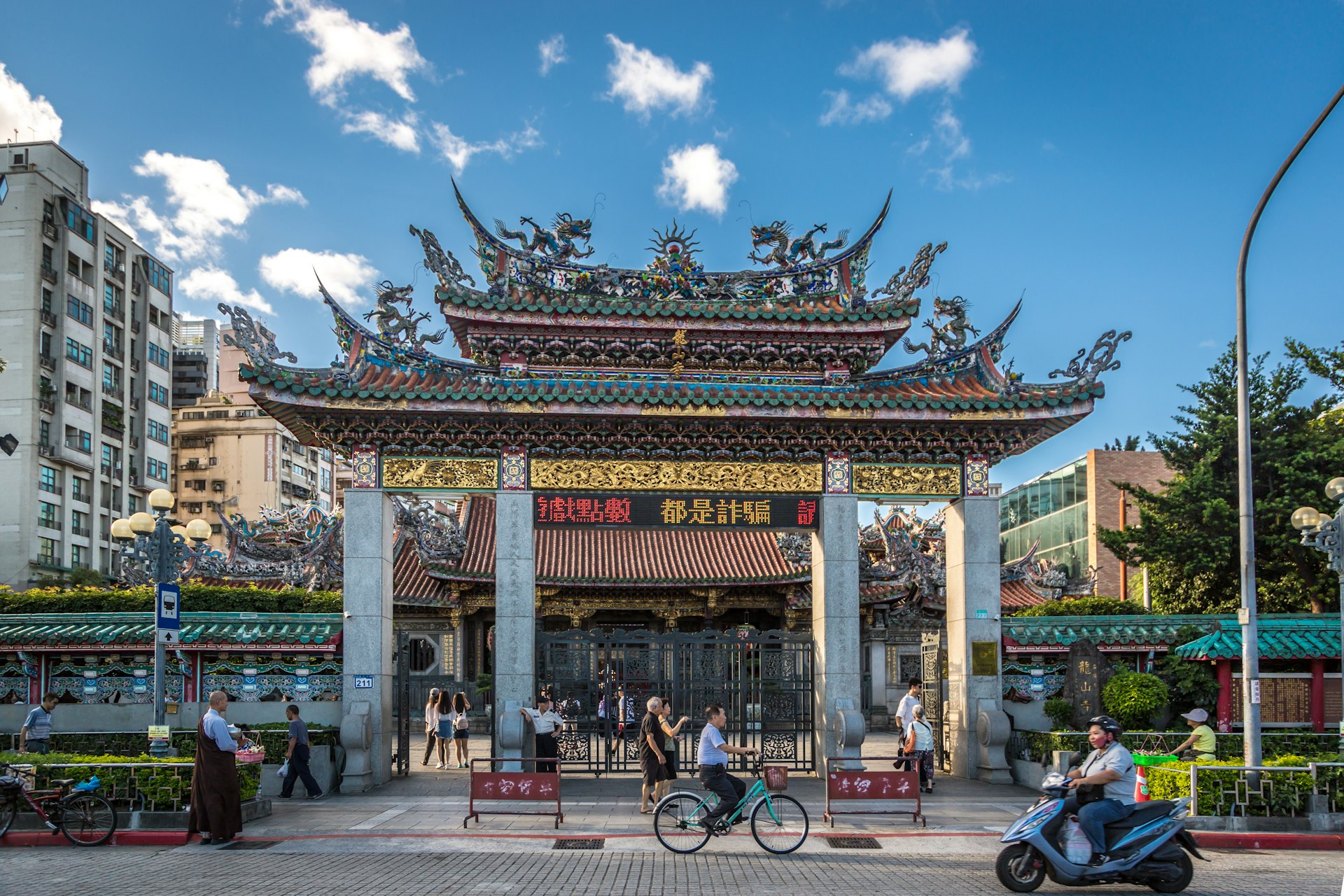
Can you extend a visa-free stay?
In short, no, unless you are from Canada or the UK; citizens from these countries can extend their stays up to 180 days. Visa holders approved for at least a 60-day stay can extend their trip, however. Applications to extend visas can be made in Taiwan at the nearest National Immigration Agency Office . It's worth noting that a visa-free stay can't be converted into a visa stay once the trip is underway.
Study, work and visitor visas for Taiwan
If you plan to go to Taiwan to work, study or visit relatives for an extended period of time, you can apply at an overseas mission of the ROC (Republic of China, Taiwan’s official name) in your home country for either a Visitor Visa (for a single entry, and for periods of less than six months) or a Resident Visa for longer stays. Note that there is no dedicated student visa category in Taiwan.
Visitor Visas cost approximately US$50 (this varies from country to country), while Resident Visas cost approximately US$100.
Opportunities also exist for citizens of many of the same countries covered by visa-free travel to apply for a visa under Taiwan’s Working Holidays Scheme , targeted at those between the ages of 18 and 30. For stints of up to 12 months, the scheme permits the holder to work during their stay – subject to a few restrictions, such as not remaining with a single employer for more than 3 months.

A useful resource for all you need to know about visas for Taiwan
Your first port of call when considering any kind of travel to Taiwan should be the Consular Affairs section of the MOFA (Ministry of Foreign Affairs) website for Taiwan. Here, you can find a list of Taiwan’s embassies and missions abroad , along with a dedicated section on visas showing the very latest requirements and regulations (under “News and Events”). You’ll also find links to the online visa application forms you will need to fill out and either post to your nearest Taiwan overseas mission or present in person, along with the list of necessary supporting documents, depending on the visa type.
This article was first published Jul 23, 2022 and updated Oct 19, 2023.
Explore related stories

Tips & Advice
Mar 28, 2024 • 6 min read
From buzzing cities to pristine island getaways, here's our guide to the best places to visit in Japan.

Feb 8, 2024 • 6 min read

Jan 27, 2024 • 15 min read

Oct 29, 2023 • 7 min read

Oct 25, 2023 • 6 min read

Oct 23, 2023 • 6 min read

Oct 23, 2023 • 10 min read

Oct 20, 2023 • 13 min read

Oct 18, 2023 • 7 min read

Oct 14, 2023 • 5 min read
International Recruitment
Find the best candidates for your team
Hire full-time talent in 180+ countries
Easily manage and pay your contractors
Localized Benefits
Local benefits & insurances
Visa & Work Permit
Relocation and visa made easy
- Discover More
With no hidden fees
How we manage your data
Local HR Knowledge
About Horizons
Our borderless team and our global purpose
Success Stories
How businesses accelarate hiring with Horizons
Partner Program
Become a partner and benefit from unique offerings
Global Hubs
Discover our international offices
Join our mission to shaping the New World of Work
Shape your strategy with key insights
Inside Horizons
A behind-the-scenes look at the best EOR
Help Center
Learn about the Horizons platform
Contact our support team
Global Payroll Calculator
Calculate employment cost
Employee Misclassification Calculator
Calculate employee misclassification risk
- For Legal , Local Knowledge , Taiwan
Taiwan Work Visa – Permit Requirements & Application Process
- Drew Donnelly, PhD Senior Regulatory Specialist
- August 11, 2022
Key Takeaways
1. Getting a Taiwan work visa can be difficult, but it’s not impossible.
2. There are three main steps to being able to legally work in Taiwan: getting a Taiwan work permit, getting a Taiwan work visa, and getting a Taiwan residence visa. These terms may seem interchangeable, but they are all individual documents that must be acquired before working in Taiwan.
3. In 2018, Taiwan began offering an “Employment Gold Card” for highly-desired foreign workers in key industries. With this 4-in-1 employment card, the administrative burden on employees and employers is much more favorable.
4. If you are looking to hire in Taiwan, Horizons can help hire Gold Card holders and local nationals at scale
Taiwan is a great place to live and work, but if you are a foreign national looking to take up residence here, you will need to meet certain eligibility criteria. You will also need to obtain three basic documents to legally immigrate to Taiwan:
- Taiwan work permit
- Taiwan work visa
- National residence permit
Here is everything you need to know about this process.
Eligibility for a Taiwan Work Visa & Permit
The Taiwanese government restricts work permits to workers in certain industries. Only the following professionals can currently receive their work permit:
- Tax and financial services workers
- Civil engineers
- Academic researchers
- Athletes and coaches
- Communications workers
- Culture, sports, and recreation services workers
- Artists and performing artists
- Healthcare workers
- Immigration services workers
- Environmental protection workers
- Veterinarians
- Technicians
- Transportation workers
- Specialized and technical workers in the manufacturing or wholesale workers
- Contract workers
- Directors or managers of a business established by or invested in by an overseas Chinese national or foreign national
The government can also specify additional industries for which work permits can be issued.
To qualify for a work permit, you must usually have at least five years of work experience in the applicable field . You must also work for or have a job offer from a company. You must have a written employment contract with the company. Your salary must also meet the minimum salary requirements.
Hire in Taiwan in 12 hours with Horizons EOR services.
Application process for taiwan work permit.
The employer is responsible for obtaining the Taiwan work permit. The employer must indicate whether the worker is a specialized or technical worker or if he or she is a managerial employee. There are stricter requirements to hire managerial workers.
The employer must meet specific capital requirements to be able to obtain a work permit for its employees, which depend on how long the company has been operational. Alternatively, the company may be eligible if it has import/export commission revenue of at least USD $400,000 in the previous year, has research and development centers or an operational headquarters that the government has approved, has a representative office that has been approved by the government, or has made significant economic contributions to Taiwan.
The employer must submit copies of a number of documents with the Taiwan work permit application , including:
- Corporate income tax return and employee’s individual income tax statement for the most recent year
- Company representative’s and employee’s identification cards or passports
- Company’s registration certification, business registration, and other applicable permits
- Letter of foreign investment approval
- Employment contract
- Employee’s education diploma and proof that a Taiwan embassy has authenticated it
- Work experience certificate
- Medical examination report
- Applicable fee
The work permit is usually good for six months, but it can be extended up to three years.
The employer can complete the application process online or by submitting an application with the Workforce Development Agency of the Ministry of Labor in person or via registered mail.
Taiwan Work Visa
After the work permit is approved, you can apply for a Taiwan work visa. You will need a valid visa to enter Taiwan in most cases. The visa may be for a single entry or for multiple entries that may last between three months to one year.
You must submit an application for a Taiwan work visa to the Taiwanese Bureau of Consular Affairs in the country where the employee lives. If the employee is already in Taiwan on a visitor visa or business visa, the employee can apply to convert their existing visa into a resident Taiwan work visa through the Bureau of Consular Affairs . The application must be submitted at least eight days before the visitor visa is set to expire.
The Taiwan work visa application must include the following documents:
- Passport that is valid for a minimum of six months after entry
- Two passport-sized color photographs with a white background that were taken within the last six months
- Approved work permit
- Health certificate issued within the past three months
- Additional documents regarding the employee’s profession
- Identification documents for a spouse or children who accompany the employee
The documents must be in English or Chinese or translated by a certified translator to be validated for a Taiwan work visa.
In some situations, the consular officer will require an in-person interview with the employee.
If the application is approved, the visa will be issued and the passport returned. The employee can then make arrangements to travel to Taiwan.
Video: Work in Taiwan from This Is Taiwan
Taiwan residence visa.
The last step in the process is to obtain your Taiwan residence visa. This document allows you to live in the country while you work and reenter the country if you leave. The technical name for this document is the Alien Resident Certificate.
Before you can obtain your resident visa, you will need to have a medical examination completed on you if it is the first time you have been to Taiwan.
To obtain this certificate, you must apply at a local service center of the National Immigration Agency within 15 days of your entrance into Taiwan. You will need to submit the following to accompany your application:
- A single color photograph
- Original passport
- Original visitor visa, if applicable
- Notarized health certificate
- Certificate of criminal record check
- Certificate of current residence
- Certificate of cause
The Alien Resident Certificate is valid for one, two, or three years, and you can renew it.
After living in Taiwan for 5 years, an alien resident is able to apply for an Alien Permanent Resident Card (APRC), which is a multiple-entry open residency permit (not tied to an employer) with a 5-10 year lifespan, which entitles its holder to the same working rights as a local national. For those who want to spend a considerable amount of time in Taiwan, an APRC is a highly-desired document to obtain.
Your employer will also need to provide notice to the government of your entrance and apply for the employee to be enrolled in National Health Insurance.
Taiwan “Gold Card” – 4-in-1 Card
In 2018, Taiwan opened the employment Gold Card program to attract foreign talents in desired industries, including:
- Science & Technology (Ministry of Science and Technology)
- Economy (Ministry of Economic Affairs)
- Education (Ministry of Education)
- Culture & Arts (Ministry of Culture)
- Sport (Ministry of Education)
- Finance (Financial Supervisory Commission)
- Law (Ministry of Justice)
- Architecture (The Construction and Planning Agency, Ministry of the Interior)
- National Defense (Ministry of National Defense)
- Special cases that, with consultation, are recognized by the NDC
- Read more about these industries and their specific requirements here.
The Gold Card is a 4-in-1 card offering multi-entry, open employment (not tied to an employer) opportunities for professionals who want to move to Taiwan. The Gold Card acts as:
- Residence Visa – allowing the holder to stay in Taiwan for more than 180 days
- Work Permit – allowing the employee to seek employment and find a job, freely
- Alien Residence Certificate (ARC) – temporary ID card
- Re-entry Permit – allowing the holder to freely exit and enter Taiwan
There are numerous benefits for Gold Card holders. These include:
- Gold Card holders are employment seekers who do not need to apply through a specific employer (compared to regular applicants who must have an employment contract)
- Gold Card holders working in Taiwan for the first time have special tax benefits for the first 5 years of tax residency in Taiwan
- Gold Card holders are able to apply for APRC after 3 full years of work in Taiwan
- Gold Card holders and their dependents can join the National Health Insurance scheme after employment without the normal 6-month waiting period
Get Help with Immigration Services
The immigration process is complex for many people outside of Taiwan. As part of our Taiwan business services , we assist employers with the immigration process and provide Taiwan work visa consulting services. We can handle this aspect of the employment relationship with you and provide you with up-to-date information about potential processing times, fees, and new requirements for your employees. We are also able to source and hire local-national employees at scale anywhere in Taiwan.
Contact our team today to get started.
Frequently asked questions
Yes, it is possible for foreigners to work in Taiwan. As of April 2021, there were well over 700,000 foreigners living in Taiwan, most of them working professionals or students.
If you are considering working in Taiwan, we recommend the following:
- Check if you are eligible for a Gold Card based on your industry, job title, etc.; apply if you are eligible
- If you are are not eligible, begin your job search and try to secure employment with a Taiwanese company
If you are a foreign company looking to hire a foreigner in Taiwan, contact us today to see what your options are .
Getting a work visa in Taiwan is not always an easy task. Many who want to live in Taiwan would need to first secure employment. This can be done online or by visiting the region to network.
If you have secured employment in Taiwan as a foreign national, your company should be able to help you through the work visa formalities. Refer to our guide above to know what to expect from the process. Good luck!
Hire and pay talents with Horizons in 180+ countries
Related posts
Horizons x hofy: seamlessly supply, manage, service your global teams’ devices, horizons berlin: an evening with hr leaders, horizons x safetywing: get insurance for nomads and remote teams, employer of record (eor) vs. setting up your own entity.
- Drew Donnelly, PhD
- Jun 7, 2023
Hire Anywhere. Today.
Join 1,500+ companies already hiring with Horizons
Headquarters 71 Robinson Road #13-153 Singapore 068895 +65 3158 1382
Europe Skalitzer Str. 85/86 10997, Berlin +49 30 3119 9653
Americas 1700 S. Lamar Blvd Suite 338 Austin, Texas 78704 +1 (737) 265-6065
See more locations
Hire Global Teams. Anywhere.
71 Robinson Road #13-153 068895, Singapore
+65 3105 1170
Skalitzer Str. 85/86 10997, Berlin +49 30 3119 9653
1700 S. Lamar Blvd Suite 338 Austin, Texas 78704 +1 (737) 265-6065
Horizons © 2024 – Privacy Imprint & Terms Third-Party Processor GDPR Policy
Privacy Preference Centre
- As per regulations of Taiwan Central Epidemic Command Center, non-R.O.C. nationals not enrolled in the NHI program should pay their medical expenses during their isolation period if they are diagnosed with COVID-19 in Taiwan. Please refer to the following official press release link for more details .
- In accordance with World Health Organization recommendations, applicants for Republic of China (Taiwan) visas must submit proof of having been administered the oral poliovirus vaccine (OPV) or the inactivated poliovirus vaccine (IPV) four weeks to one year before applying if they have resided in or visited countries at high risk for poliovirus transmission (namely Afghanistan, Malawi, Mozambique, Pakistan, Madagascar, and the Democratic Republic of the Congo) for four weeks or longer within the past year.
- You must agree to the terms and conditions to continue with the application
You are about to access the visa application computer system of the Bureau of Consular Affairs, Ministry of Foreign Affairs, Republic of China (Taiwan). This system and related data are property of the ROC Government, and provided for reviewing visa applications by the Bureau of Consular Affairs and ROC overseas missions and for official use by the ROC Government. This site adopts security maintenance technology to prevent unauthorized access to the personal information you provided. However, according to Article 28 and 29 of Personal Information Protection Act, if your personal information and rights are compensated caused by such reasons as natural disaster, incident or other force majeure, and the third party's illegal collection, the ROC Government will not be liable for the damages.
All information provided by you or a third party designated by you must be accurate and true. Even if you are granted a visa or an eVisa, immigration officers at ports of entry in Taiwan have the right to deny entry without providing further explanation.
Please notice that the information you fill in online, including Surname, Given Name, Date of Birth, Passport No., Nationality and Sex, must completely match the information on your travel document; otherwise, your eVisa will be invalid.
If you have applied for an eVisa recently, please make sure your eVisa has been successfully issued. If you submit a second eVisa application without checking the approval of the previous eVisa, it is considered that you need 2 eVisas. Therefore, the online payment for these 2 eVisa applications will not be refunded.
Continue to use this system indicates that you consent to the terms set forth in this statement. Unauthorized users or illegal access may violate related articles of Personal Information Protection Act and Criminal Law.
We’re sorry, this site is currently experiencing technical difficulties. Please try again in a few moments. Exception: request blocked
- Join as a Workawayer
- Join as a host
- Buy a gift membership
Homestays, Volunteering & Working Holidays in Taiwan
Important information about visiting: taiwan.
Meaning of the colours:
By default (toggle switch to the left) hosts who have both yellow AND green indicated for the months you have selected will be shown. If you move the toggle to the right ONLY hosts who have indicated green will be shown.
Meaning of this:
By default (toggle switch to the left) will show hosts who have ANY of the months you have chosen marked as available. This means that some of the months might be marked red (no availability.) If you need to see ALL of the months you have selected as available move the toggle to the right.
Taiwan
Inspiration from around the world
Estonia
Sweden
Spain
France
Your next adventure begins today
Join the Workaway community today to unlock unique travel experiences with over 50,000 opportunities around the globe.
Forgotten your password?
Workaway has committed over $20,000 USD from the Workaway foundation to help refugees from Ukraine.
Upon request all workawayers based in Ukraine will have their accounts extended for free until further notice.
Hosts in Ukraine have been temporarily disabled for safety reasons.
If you are a host and are able to take in refugees please add the information in your account and you will be added to our last minute host list .
Should you wish to donate and help please click here .
Visa Traveler
Exploring the world one country at a time
Taiwan Visa for Tourists in 2024: A Comprehensive Guide
Updated: April 18, 2024
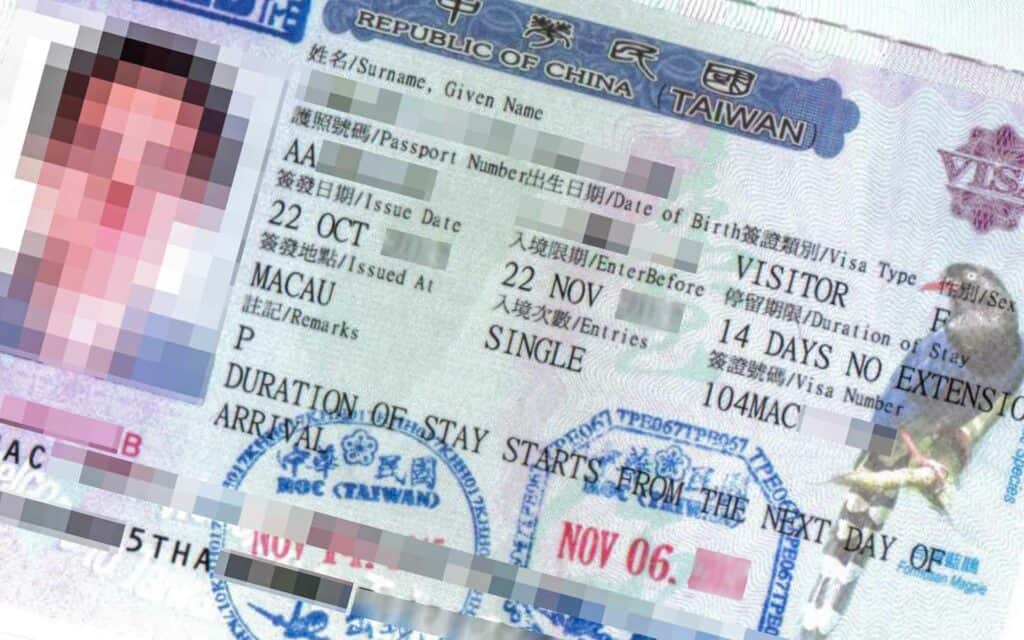
Despite its diplomatic isolation, Taiwan remains a popular tourist hotspot for travelers from all over the world. Taiwan visa policy is uncomplicated unless you’re from Mainland China, Macau, or Hong Kong.
In this article, you will learn about Taiwan visa, its visa exemption, e-visa, and visa on arrival for tourists. I will also shed some light on the requirements for Chinese visitors.
Table of Contents
Visa policy and visa types.
Nationals from 65 countries are visa-exempt when visiting Taiwan for either 14, 30, or 90 days.
Visa on arrival is available for Turkey free of charge.
Taiwan launched its eVisa program in 2016 and today 25 countries are eligible. Some may only get an eVisa if they’re part of a tour group.
An Online Travel Authorization Certificate instead of a visa is available for nationals of 6 countries under certain conditions and only if they have a valid or expired visa from some of the most advanced economies.
Certain special conditions are in place for passport holders on neither of these lists. Visitor visa applications can be submitted at a select few Taiwanese overseas missions.
Visitors from Mainland China (PRC), Hong Kong, and Macau must acquire prior approval from Taiwan and have an Exit and Entry Permit.
People born in Mainland China or certain high-risk countries may not be eligible for certain visas depending on their nationality.
Below is the summary of various visa types:
Visa Requirements
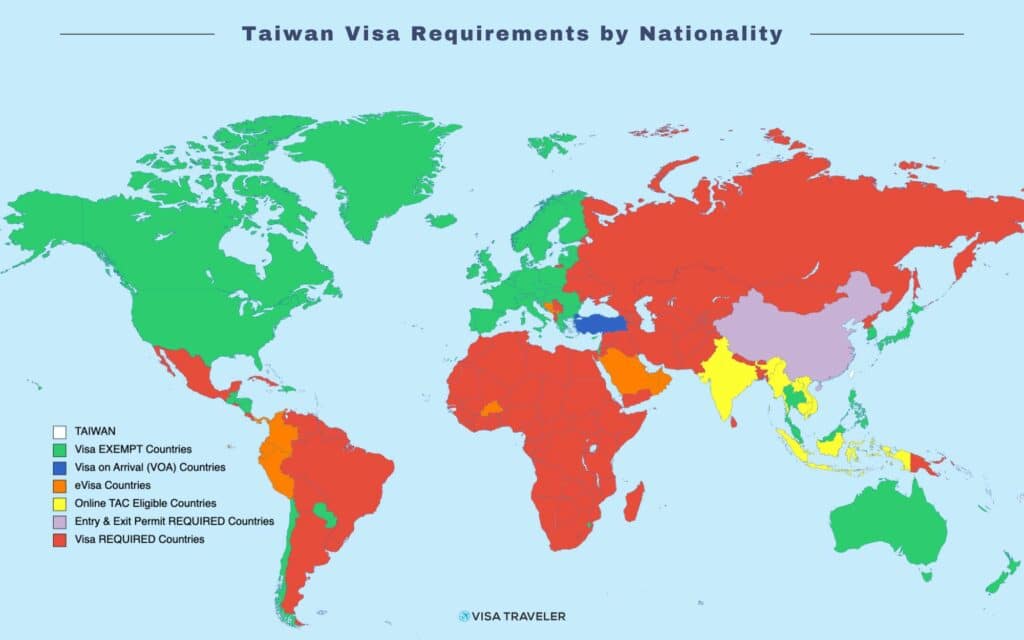
The following requirements apply to all visitors:
- A passport valid for at least 6 months
- A confirmed return or onward ticket via air or sea
If you’re visa-exempt, it’s highly unlikely immigration officers will ask to see your next ticket. They didn’t when I last traveled but for peace of mind, you can book an onward ticket .
Visa Exemption (VISA-FREE)
Visa exemption is issued at all airports and harbors. Depending on nationality, it is valid for either 14, 30, or 90 days.
- Liechtenstein
- Marshall Islands
- Netherlands
- New Zealand
- North Macedonia (effective until March 31, 2025)
- South Korea
- Switzerland
- United Kingdom
- United States of America
- Vatican City
- Dominican Republic
- Saint Kitts and Nevis
- Saint Lucia
- Saint Vincent and the Grenadines
- Philippines*
* Effective until July 31, 2024
The validity duration starts on the day after the date of arrival.
Visa exemptions are not extendable, except for nationals of Canada and the UK who can extend once.
Ineligibility based on place of birth
Passport holders from Belize, Eswatini, Nauru, Saint Kitts and Nevis, Saint Lucia, and Tuvalu are NOT visa-exempt if their place of birth in their passport is one of these countries:
- Afghanistan
- China (PRC)
Passport holders from Honduras are also ineligible for the visa exemption if their place of birth is China (PRC).
Taiwan Visa on Arrival (Landing Visa)
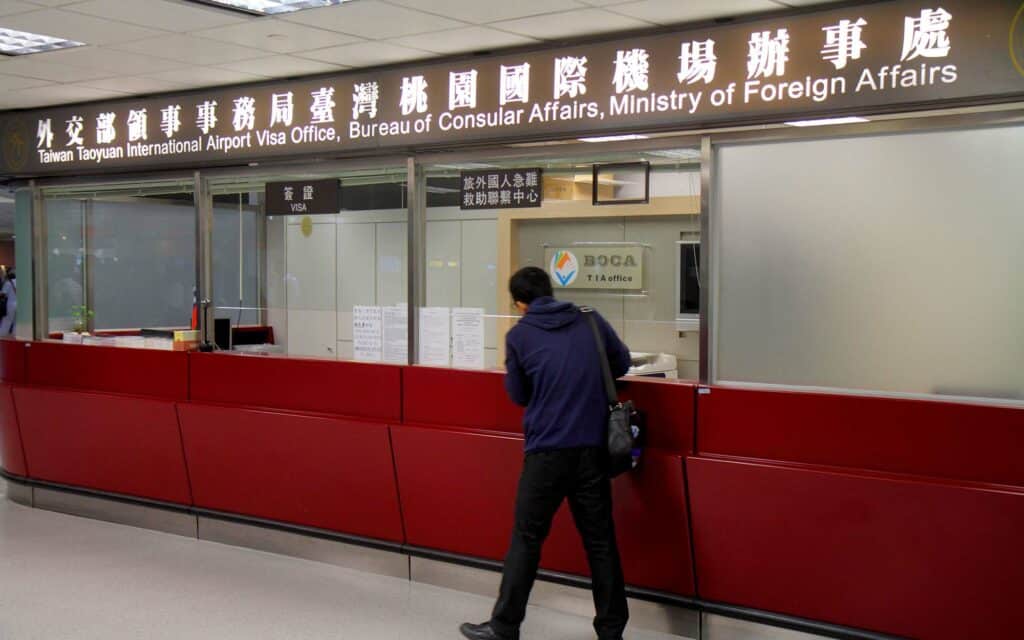
Only Turkey passport holders are currently eligible for a Taiwan Visa on Arrival (VOA). VOA is officially referred to as a “Landing Visa”. The visa is free of charge and valid for 30 days.
Temporary and emergency passport holders from visa-exempt countries are also eligible to obtain VOA in Taiwan. These passport holders have to pay a visa fee of 1,600 TWD and 800 TWD handling fees.
VOA is only available at Taiwan Taoyuan International Airport but it is possible to enter from another International airport and obtain the visa inside the country.
Read Taiwan Visa on Arrival for more information on requirements, documents and VOA procedures at various international airports in Taiwan.
Taiwan eVisa
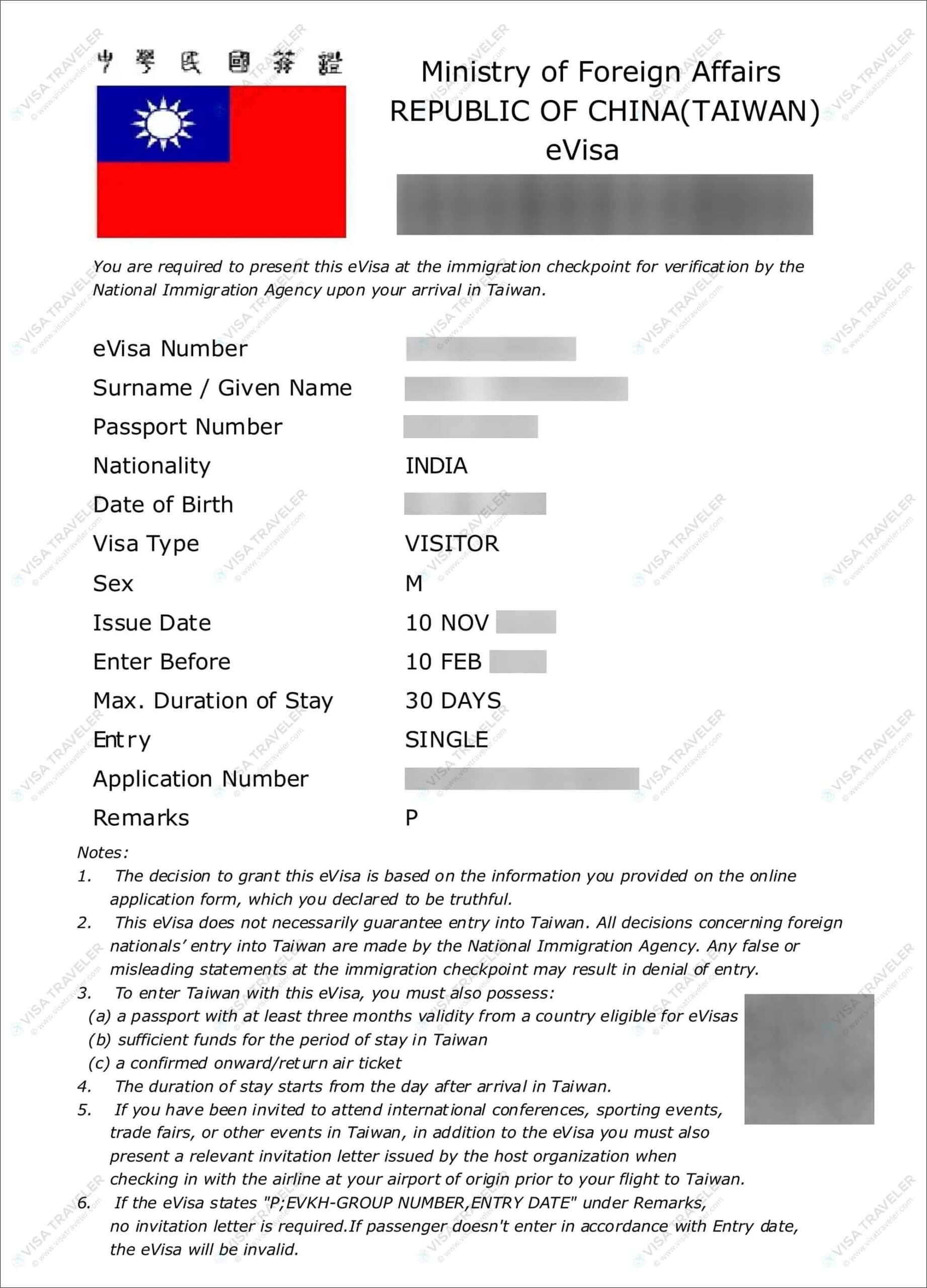
Taiwan issues eVisas for tourist purposes to individual travelers from these countries:
- Bosnia and Herzegovina (Free)
- Burkina Faso
- Colombia (Free)
- Kiribati (Free)
- Kosovo (Free)
- Mauritius (Free)
- Montenegro (Free)
- Panama (Free)
- Peru (Free)
- Saudi Arabia
- Solomon Islands (Free)
- Turkey (Free; also eligible for a visa on arrival)
- United Arab Emirates.
eVisa is also available to the following countries if traveling as part of an approved tour group ;
The eVisa is valid for 3 months from the date of issue and allows 1 entry for up to 30 days. It costs 1600 TN + 46 NT processing fee (~53$), except for countries with (free) next to their names on the list above.
The eVisa is valid at all immigration checkpoints.
Read the Taiwan eVisa article for more information on eVisa requirements, documents and the application process.
Travel Authorization Certificate (TAC)
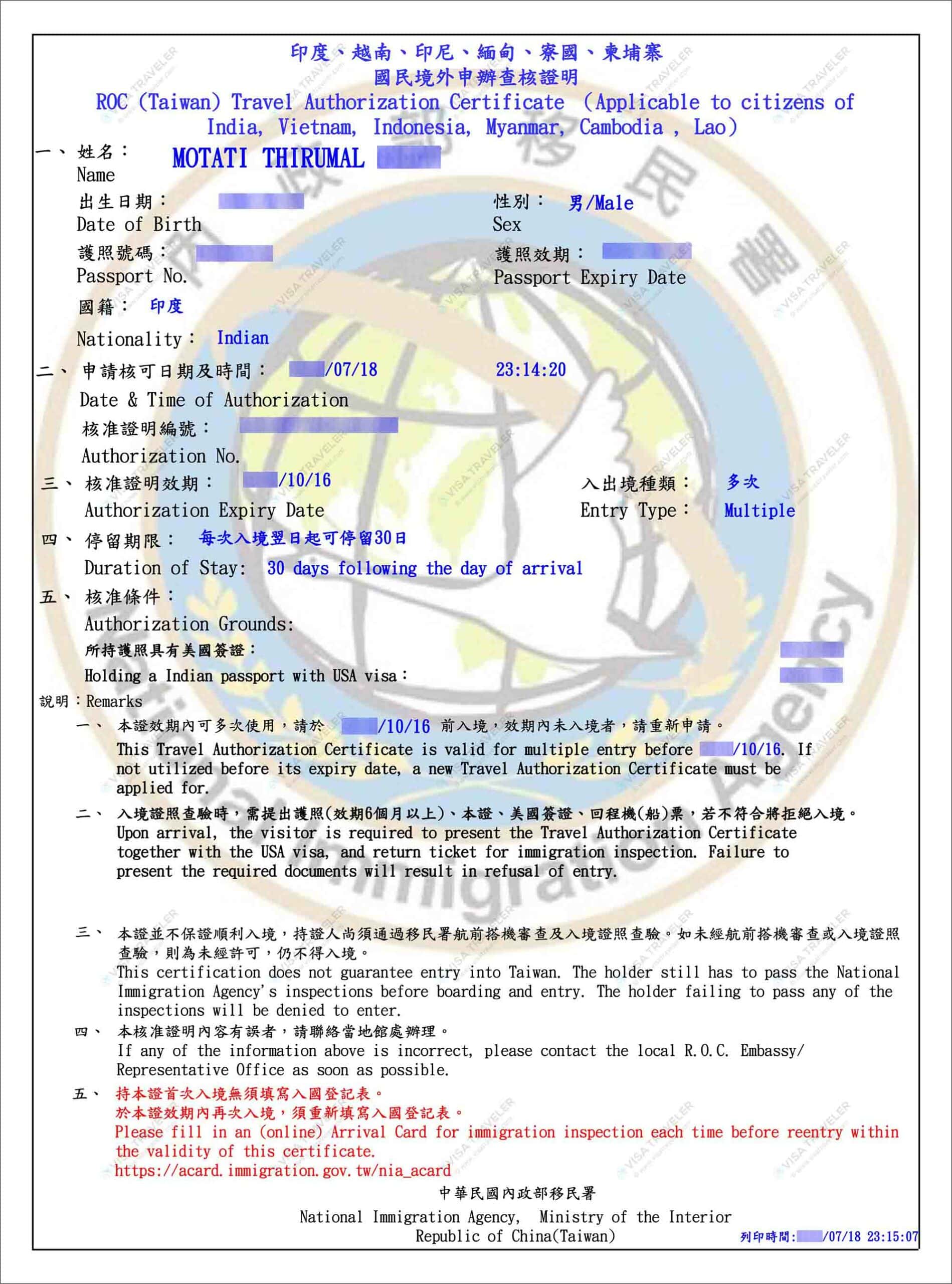
Passport holders of the following countries may be eligible for an Online Travel Authorization Certificate (OTAC) free of charge:
- Cambodia
- India
- Indonesia
- Myanmar
- Vietnam
The conditions are that the applicant:
- Has never been employed as a migrant worker in Taiwan;
- United States
- Japan (except for Vietnam)
- Korea (except for Vietnam)
- Any EU or Schengen country
- Taiwan (except for visas marked FL, X, or P)
The OTAC is valid for 90 days for multiple entries. Each visit can be up to 14 days.
Read the Taiwan Travel Authorization Certificate (TAC) article for more information on the documents required, processing times, application process and border procedures.
Taiwan Tourist Visa
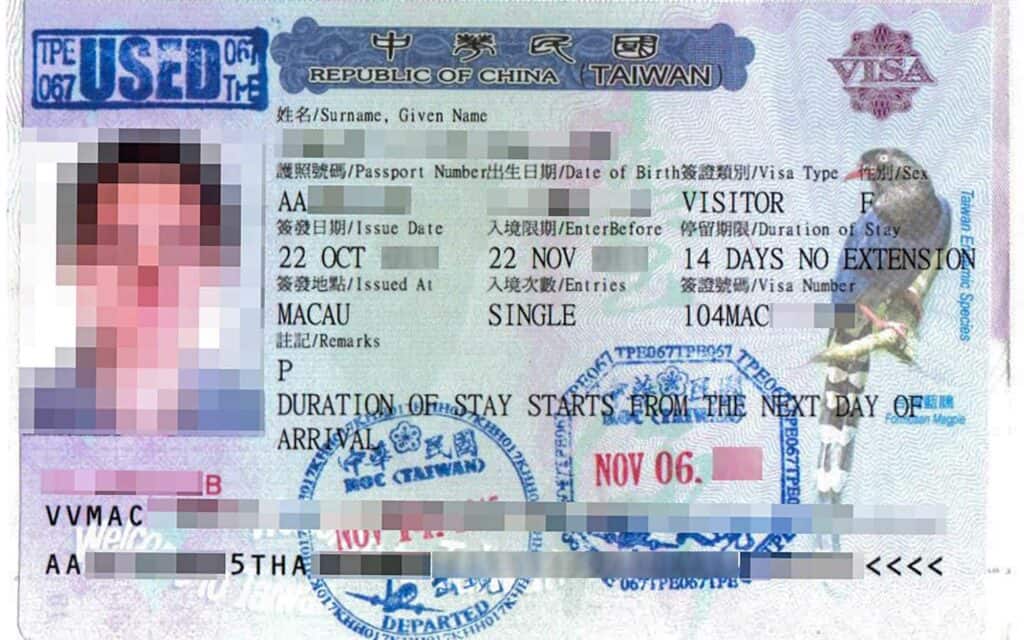
For countries not eligible for any of the options above, a tourist visa from one of Taiwan’s overseas missions remains the only option.
Officially Taiwan only has embassies in countries that recognize Taiwan (ROC) instead of China (PRC). Currently, it’s only 13 countries that recognize Taiwan. However, Taiwan’s cultural centers, trade centers, and overseas missions in most other countries effectively function as embassies.
The application procedure can be complex and lengthy. It starts with applying to one of Taiwan’s offices abroad, often followed by an interview and a request for a letter of guarantee from a Taiwanese sponsor.
For nationals of the following countries, obtaining a tourist visa for Taiwan is not possible. They are only allowed to obtain Taiwan visitor visas for purposes other than tourism such as business, family, etc. They must also have a sponsor in Taiwan.
Read the Taiwan tourist visa article for more information on the documents required, fees, processing time and application procedure.
Taiwan Transit Visa
If you don’t leave the international transit area of any airport in Taiwan, you don’t need a visa.
Taiwan does not issue transit visas that allow entry to the country past immigration.
Nationals of Hong Kong and Macau
Permanent residents of Hong Kong and Macau do not need a visa to enter Taiwan but must have an Exit and Entry Permit and certain requirements:
- Were born in Hong Kong or Macau;
- Have entered Taiwan at least once as a permanent resident of Hong Kong or Macau; (and have proof if the visit was before 1983);
- Hong Kong Special Administrative Region;
- British Overseas National;
- Macao Special Administrative Region.
The Exit and entry permit is
- 300 NT (~10$) if obtained on arrival;
- Free if obtained online;
- 600 NT (~20$) if NOT born in Hong Kong or Macau and applying online for the first time.
The requirements can quickly become confusing. It’s best to check online on the Official ROC Embassies and Missions Website .
Nationals of the People’s Republic of China
To travel to Taiwan, passport holders from China PRC must:
- Have prior approval from the Taiwanese government
- Have an Exit and Entry Permit
- Travel as part of an organized tour group subject to a quota of 14,600 visitors per day.
This is unless they have a temporary or permanent residence in Hong Kong, Macau, or a third country and reside outside of China PRC.
Additional requirements may come from the Chinese PRC government.
It’s best to check the Taiwanese Immigration website for detailed information and conditions.
Taiwan Arrival Card
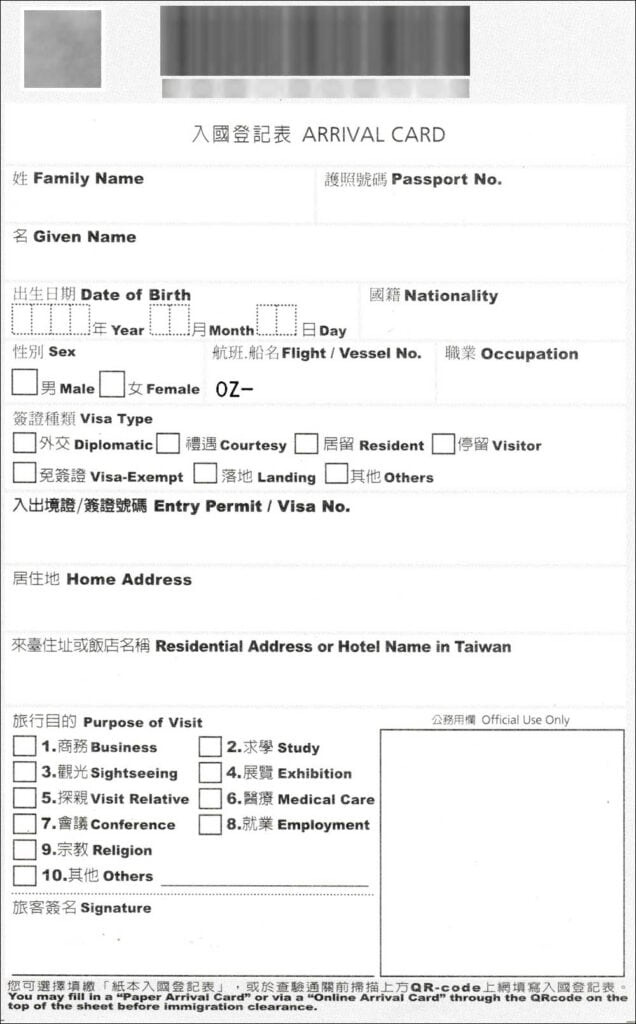
Everyone who arrives in Taiwan must complete an arrival card. You can fill out the arrival card online before arrival or at the airport.
Frequently Asked Questions (FAQs)
Do i need an evisa if i am on a cruise ship.
If you’re not eligible for a visa exemption and arrive in Taiwan on a cruise ship, you should obtain a special temporary entry permit. It’s best to ask your cruise company, they will surely facilitate it.
Do I need a visa if I do not leave the transit area at the airport?
You don’t need a visa if you don’t pass immigration and only stay inside the airport’s transit zone.
How long in advance should I apply for an eVisa?
Apply at least 7 days before traveling.
Are there multiple entry visas for Taiwan?
Taiwan doesn’t issue multiple-entry visas for tourists.
What are the COVID testing and vaccination requirements for Taiwan?
You don’t need a test, or proof of vaccination to travel to Taiwan.
WRITTEN BY THIRUMAL MOTATI

Thirumal Motati is an expert in tourist visa matters. He has been traveling the world on tourist visas for more than a decade. With his expertise, he has obtained several tourist visas, including the most strenuous ones such as the US, UK, Canada, and Schengen, some of which were granted multiple times. He has also set foot inside US consulates on numerous occasions. Mr. Motati has uncovered the secrets to successful visa applications. His guidance has enabled countless individuals to obtain their visas and fulfill their travel dreams. His statements have been mentioned in publications like Yahoo, BBC, The Hindu, and Travel Zoo.
PLAN YOUR TRAVEL WITH VISA TRAVELER
I highly recommend using these websites to plan your trip. I use these websites myself to apply for my visas, book my flights and hotels and purchase my travel insurance.
01. Apply for your visa
Get a verifiable flight itinerary for your visa application from DummyTicket247 . DummyTicket247 is a flight search engine to search and book flight itineraries for visas instantly. These flight itineraries are guaranteed to be valid for 2 weeks and work for all visa applications.
02. Book your fight
Find the cheapest flight tickets using Skyscanner . Skyscanner includes all budget airlines and you are guaranteed to find the cheapest flight to your destination.
03. Book your hotel
Book your hotel from Booking.com . Booking.com has pretty much every hotel, hostel and guesthouse from every destination.

04. Get your onward ticket
If traveling on a one-way ticket, use BestOnwardTicket to get proof of onward ticket for just $12, valid for 48 hours.
05. Purchase your insurance
Purchase travel medical insurance for your trip from SafetyWing . Insurance from SafetyWing covers COVID-19 and also comes with a visa letter which you can use for your visas.
Need more? Check out my travel resources page for the best websites to plan your trip.
LEGAL DISCLAIMER We are not affiliated with immigration, embassies or governments of any country. The content in this article is for educational and general informational purposes only, and shall not be understood or construed as, visa, immigration or legal advice. Your use of information provided in this article is solely at your own risk and you expressly agree not to rely upon any information contained in this article as a substitute for professional visa or immigration advice. Under no circumstance shall be held liable or responsible for any errors or omissions in this article or for any damage you may suffer in respect to any actions taken or not taken based on any or all of the information in this article. Please refer to our full disclaimer for further information.
AFFILIATE DISCLOSURE This post may contain affiliate links, which means we may receive a commission, at no extra cost to you, if you make a purchase through a link. Please refer to our full disclosure for further information.
MORE VISA GUIDES

UNITED KINGDOM

VIEW ALL VISA GUIDES
- Cookie Policy
- Copyright Notice
- Privacy Policy
- Terms of Use
- Flight Itinerary
- Hotel Reservation
- Travel Insurance
- Onward Ticket
- Testimonials
Search this site
Cookies on GOV.UK
We use some essential cookies to make this website work.
We’d like to set additional cookies to understand how you use GOV.UK, remember your settings and improve government services.
We also use cookies set by other sites to help us deliver content from their services.
You have accepted additional cookies. You can change your cookie settings at any time.
You have rejected additional cookies. You can change your cookie settings at any time.
- Passports, travel and living abroad
- Travel abroad
- Foreign travel advice
Entry requirements
This advice reflects the UK government’s understanding of current rules for people travelling on a full ‘British citizen’ passport , for the most common types of travel.
The authorities in Taiwan set and enforce entry rules. If you’re not sure how these requirements apply to you, contact the Taipei Representative Office in London or the Taipei Representative Office in Edinburgh . Entry procedures are being regularly reviewed, so may change at short notice.
COVID-19 rules
There are no COVID-19 testing or vaccination requirements for travellers entering Taiwan.
Epidemic prevention period
When you arrive in Taiwan, the authorities advise that you observe a 7-day self-initiated epidemic prevention period, but you no longer need a negative test result before going out. The authorities are no longer providing free rapid test kits on arrival. You can use your booked accommodation and you can move freely during the 7 days.
This self-health management scheme is provided as guidance by the Central Epidemic Command Center (CECC), and members of the public are free to decide whether to follow it. Please consult the Centres for Disease Control website for the latest guidance.
Passport validity requirements
To enter Taiwan, your passport must have an ‘expiry date’ at least 6 months after the day you arrive.
Check with your travel provider that your passport and other travel documents meet requirements. Renew your passport if you need to.
You will be denied entry if you do not have a valid travel document or try to use a passport that has been reported lost or stolen.
Visa requirements
You can spend up to 90 days in Taiwan without a visa. You can extend this by a further 90 days once you have arrived in Taiwan. You can get more information on entering Taiwan without a visa (‘visa-exempt entry’) from the Taiwan Bureau of Consular Affairs. This applies if you travel:
- as a tourist
- to visit family or friends
- to attend business meetings, cultural or sports events
If you plan to stay in Taiwan for longer than 180 days, you must have a visa before you arrive. If you stay beyond the time given on your visa, you will get a fine and risk being deported from Taiwan.
There are specific rules for naturalised British citizens born in the People’s Republic of China and holders of British National (Overseas) passports wishing to enter under the visa waiver scheme.
You should contact the Taiwan Bureau of Consular Affairs or Taiwan National Immigration Agency for further information.
Applying for a visa
If you are in the UK and need a visa, apply at your nearest Taipei Representative Office . If you are in Taiwan, apply through the Taiwan National Immigration Agency .
Alien Resident Certificate and Alien Permanent Resident Certificate holders
If you already hold a resident certificate, you do not need a visa to enter Taiwan.
If you hold a Youth Mobility Scheme visa for Taiwan , you can apply to switch to a working visa or a visa to study a degree course at undergraduate level or higher.
Submit your application to the Bureau of Consular Affairs for consideration. You can then apply for an Alien Resident Certificate (ARC) at your local National Immigration Agency (NIA) Service Center once your application has been approved. Contact the Bureau of Consular Affairs or National Immigration Agency for further information.
Vaccination requirements
At least 8 weeks before your trip, check the vaccinations and certificates you need in TravelHealthPro’s Taiwan guide .
Customs rules
There are strict rules about goods you can take into or out of Taiwan . You must declare anything that may be prohibited or subject to tax or duty. Contact the Customs Administration for further information.
Animal products
Do not bring animal products into Taiwan without authorisation. If you are caught with any animal products, you may face a heavy fine. Customs officials have increased inspections due to concerns about African Swine Fever Virus in pork products, particularly from the People’s Republic of China.
Bringing money into Taiwan
Declare cash or travellers cheques if the value is higher than 100,000 New Taiwan Dollar (NTD) or 10,000 US dollars. You will get a certified declaration to show you brought it in with you. If you do not, your money could be seized when you leave. Contact the Customs Administration for further information.
International bank transfers can be slow. Most of the ATMs in 7-11 stores accept international cards. Other ATMs may accept them, but not all do.
American Express, Citibank and Thomas Cook branches accept their own-brand travellers cheques. You may need your receipt as well as your passport when you cash them.
Related content
Is this page useful.
- Yes this page is useful
- No this page is not useful
Help us improve GOV.UK
Don’t include personal or financial information like your National Insurance number or credit card details.
To help us improve GOV.UK, we’d like to know more about your visit today. Please fill in this survey .
變更語言 : Change to Traditional Chinese
Apply for a U.S. Visa
- Payment Options
- DS-160 Information
- Appointment Wait Times
- Photos and Fingerprints
- Visa Waiver Program
- Apply for a Visa
- Pay My Visa Fee
- Complete My DS-160
- Schedule My Appointment
- Change Document Delivery Address
- Track & Retrieve My Passport
- Apply for an Expedited Appointment
- Drop-off Service
- Application Refused Under INA
- Visa Information
- Check My Immigrant Visa Petition Status
- Immigrant Visa Wait Times
- Fiancé (e) Visas (K1 & K2)
- Returning Resident (SB-1) Visas
- Select Document Delivery Address
- AmCham Program
- Travel Coordinator
- Diplomatic and Government Officials
- Visas for Children
- American Institute in Taiwan
- Document Drop-Off Locations
- Passport/Visa Collection Locations
- Bank Locations
- Frequently Asked Questions
- Security Regulations
- Holidays and Closures
- Rights and Protections
- Helpful Links
You are here: Home / Work Visa
Common Nonimmigrant Visas
- Business/Tourist Visa
- Student Visa
- Exchange Visitor Visa
- Transit/Ship Crew Visa
- Religious Worker Visa
- Domestic Employee Visa
- Journalist and Media Visa
- Treaty Traders And Treaty Investors (E-1/E-2)
- A List of NIV Types
On this page:
Visa Descriptions and Qualifications
When to apply, how to apply, application items, supporting documents, more information.
If you want to work in the U.S. temporarily as a nonimmigrant, under U.S. immigration law, you need a specific visa based on the type of work you will be doing. Most temporary worker categories require that your prospective employer or agent file a petition, which must be approved by the U.S. Citizenship and Immigration Services (USCIS) in the United States before you can apply for a work visa.
All applicants for H, L, O, P and Q visas must have a petition approved on their behalf by USCIS. The petition, Form I-129 , must be approved before you can apply for a work visa at the American Institute in Taiwan. When your petition is approved, your employer or agent will receive a Notice of Action, Form I-797, which serves as your petition's approval notification. The consular officer will verify your petition approval through the Department of State's Petition Information Management Service (PIMS) during your interview.
You must bring your I-129 petition receipt number to your interview at the American Institute in Taiwan in order to verify your petition's approval. Please note that approval of a petition does not guarantee issuance of a visa if you are found to be ineligible for a visa under U.S. immigration law.
H-1B (specialty occupation)
An H-1B visa is required if you are coming to the United States to perform services in a pre-arranged professional job. To qualify, you must hold a bachelor's or higher degree (or an equivalent degree) in the specific specialty for which you seek employment. USCIS will determine whether your employment constitutes a specialty occupation and whether you are qualified to perform the services. Your employer is required file a labor condition application with the Department of Labor concerning the terms and conditions of its contract of employment with you.
H-1B1 (Free Trade Agreement professional) Free trade agreements signed with Chile and Singapore permit qualified Chilean and Singaporean citizens to temporarily work in the United States in certain circumstances. Only Chilean and Singaporean citizens are eligible as principal applicants , although their spouses and children may be nationals of other countries.
Applicants for H-1B1 visas should already have a job offer from an employer in their chosen work area in the United States, but the employer does not have to file Form I-129, Petition for Nonimmigrant Worker, and the applicant does not need to obtain a Notice of Approval, Form I-797 form before submitting the visa application. However, the employer does need to file an Application for Foreign Labor Certification with the Department of Labor prior to applying for the visa. For more information on the H-1B1 visa, please visit https://travel.state.gov/content/visas/en/employment/temporary.html
H-2A (temporary agricultural workers)
An H-2A visa allows U.S. employers to bring foreign nationals to the United States to fill temporary agricultural jobs for which U.S. workers are not available. An H-2A nonimmigrant classification applies to you if you seek to perform agricultural labor or services of a temporary or seasonal nature in the United States on a temporary basis. A U.S. employer (or an association of U.S. agricultural producers named as a joint employer) must file a Form I-129, Petition for Nonimmigrant Worker, on your behalf.
H-2B visa (temporary non-agricultural workers)
This visa is required if you are coming to the United States to perform a job which is temporary or seasonal in nature and for which there is a shortage of U.S. workers. Your employer is required to obtain a Department of Labor certification confirming that there are no qualified U.S. workers eligible for the type of employment on which your petition is based.
H-3 (trainee)
An H-3 visa is required if you are coming to the United States to receive training from an employer in any field of endeavor, other than graduate education or training, for a period of up to two years. You can be paid for your training and "hands-on" work is authorized. Training cannot be used to provide productive employment and cannot be available in your home country.
H-4 (dependent)
If you are the principal holder of a valid H visa, your spouse or unmarried children (under age 21) may receive an H-4 visa to accompany you to the United States. However, your spouse/children are not permitted to work while in the United States.
L-1 (intra-company transferee)
An L-1 visa is required if you are the employee of an international company which is temporarily transferring you to a parent, branch, affiliate, or subsidiary of the same company in the United States. The international company may be either a U.S. or foreign organization. To qualify for an L-1 visa, you must be at the managerial or executive level, or have specialized knowledge and be destined to a position within the U.S. company at either of these levels, although not necessarily in the same position as held previously. In addition, you must have been employed outside the United States with the international company continuously for one year within the three years preceding your application for admission into the United States. You may only apply for an L-1 visa after your U.S. company or affiliate has received an approved petition from USCIS, either on a "blanket" or individual basis.
L-2 (dependent)
If you are the principal holder of a valid L visa, your spouse or unmarried children (under age 21) may receive this derivative visa. Due to a recent change in the law, your spouse may seek employment authorization. Your spouse must enter the United States on his or her own L-2 visa and then submit a completed Form I-765 (obtainable from USCIS), along with an application fee. Your children are not authorized to work in the United States.
O (individual with extraordinary ability or achievement)
Class O visas are issued to people with extraordinary ability in the sciences, arts, education, business and athletics, or extraordinary achievement in motion picture and television production, and their essential support personnel.
P (athlete, artist, entertainer)
Class P visas are issued to certain athletes, entertainers, artists and essential support personnel who are coming to perform in the United States.
All foreign performers, entertainers, and their technical assistants require an approved work petition from the U.S. Citizenship and Immigration Services prior to applying for visas to engage in live performances or production of recorded entertainment material (films and video productions). The process for filing work petitions for performers, entertainers, and their technical assistants is complex. The American Institute in Taiwan recommends that the promoter, sponsor, or producer of performances or entertainment productions in the United States seek expert counsel from an attorney who has experience in obtaining visa petition approval for members of the entertainment professions. Depending on the circumstances of the project at hand, work petitions may be appropriate.
Many American and local organizations mistakenly believe that advance petition approval is not required if the sponsoring organization has non-profit status, if no tickets will be sold, or if the performers will not be remunerated. This is not correct. There are only three circumstances under which foreigners may perform in the U.S. without an approved work petition:
- Amateur performers do not require work petitions from USCIS and are free to perform while in B visitor status. Amateur performers will generally have a type of principal employment, occupation, or studies which is unrelated to their side interest in performing. Amateurs by definition must not be remunerated beyond expenses for their performances. Please note that in many cases children must be considered as professional performers, especially if they are full time students at schools that are funded in large part through ticket sales.
- Cultural propaganda performances do not require work petitions from USCIS if the performances are completely funded by the central government of a foreign country for the purpose of introducing its culture to audiences in the United States. For B-class visitor visas to be used, the performers must not be remunerated from any U.S. source, no U.S. sponsor, facilitator, or promoter can be involved in the production, no tickets can be sold, and 100 percent of the expense must be borne by the central government of the sending country. If the production has an American co-sponsor, then this exception does not apply and a petition from USCIS is required.
- Foreign musicians may record audio performances at U.S. recording studios staffed by U.S. citizens and residents as B-class visitors without any USCIS petition, provided that the recording will be distributed and sold only outside the United States; and no public performances will be given..
Q (participant in an international cultural exchange program)
A Q visa is required if you are traveling to the United States to participate in an international cultural exchange program for the purpose of providing practical training, employment, and the sharing of the history, culture, and traditions of your home country. You must have a petition filed on your behalf by the program sponsor and the petition must be approved by USCIS.
The American Institute in Taiwan may accept applications for an H, L, O, P, or Q visa up to 90 days in advance of applicants’ beginning of employment status as noted on the Form I-797, Notice of Action. These applicants (except for H-2A applicants) can only use the visa to apply for U.S. entry starting ten days before the beginning of the approved status period noted on their Form I-797. H-2A applicants may apply to enter up to one week before the beginning of the approved period.
Double check your I-129, I-129S, and/or I-797 for accuracy, if available.
Contact your employer if you see an error.
Complete the Nonimmigrant Visa Electronic Application (DS-160) form .
Create your profile and pay the visa application fee .
Schedule an interview
Please note: You may not need to go for an interview in person. P lease follow the instructions found here to see if you qualify for Drop-off service (Interview Waiver).
If you need an interview: You can log in to your profile to schedule your interview after your visa fee payment receipt has been activated. For more information about payment options and receipt activation times, click here .
Appear at AIT for an interview
Visit the American Institute in Taiwan (AIT) on the date and time of your visa interview. You must bring all the application items . Applications without all of these items will not be accepted. You may also bring whatever supporting documents you believe support the information provided to the consular officer.
Access to AIT Consular Section waiting room is limited to the following:
- Applicants;
- Parents or legal guardians of applicants under 18 years old;
- Aides of disabled applicants
Appointment holders must have an appointment confirmation page and may not be admitted more than 10 minutes before and after their appointment time.
Please review AIT’s security regulations prior to your visit. In particular, please note the rules regarding Personal Electronic Devices (PEDs).
Receive your documents
You can check your visa application status here. If your visa application is approved, your passport and visa will be returned to you via courier service. Regular J applicants can also track the status of your passport delivery using your passport number or the courier tracking number .
Applicants participating in a program sponsored by the U.S. Federal Government will be advised of the document receipt option during the interview.
If you apply for an H, L, O, P, or Q visa, you must submit the following:
- A Nonimmigrant Visa Electronic Application (DS-160) Form confirmation page. Anytime you make a new application, you must complete a new DS-160. Each applicant, including children, must have their own DS-160 application. Please print out and bring your DS-160 confirmation to your interview. Please make sure the printed bar codes are clear. Incomplete, incorrect, or unclear barcodes will NFOT be accepted and will result in cancellation of your appointment. Visit the DS-160 web page for more information about the DS-160.
- A valid passport. Most visa applicants must have a passport valid for at least 6 months past the date of their anticipated departure from the United States. Taiwan passport holders and passport holders from certain countries may enter the United States with passports that will expire in less than 6 months. However, they will not be permitted to remain in the U.S. beyond the validity of their passports.
- All previous passports - If your previous passports are lost or stolen, you must provide AIT with a Certificate of Entry and Exit Dates (from 1983 to present). To obtain a Certificate of Entry and Exit Dates, please visit the Taiwan National Immigration Agency’s website for details. If you have reported for passport lost, please also provide the police report.
- One color photograph (5cmx5cm) taken within the last six months with a white or off-white background. Starting November 1, 2016, eyeglasses will no longer be allowed in visa photos. This web page has information about the required photo format.
- A receipt showing payment of your non-refundable nonimmigrant visa application processing fee paid in local currency. This web page has more information about paying this fee. If a visa is issued, there may be an additional visa issuance reciprocity fee, depending on your nationality. The Department of State's website can help you find out if you must pay a visa issuance reciprocity fee and what the fee amount is.( AIT strongly advises all customers to bring cash, as our system does not always accommodate credit card transactions. Thank you.)
- An interview appointment letter confirming that you booked an appointment. Please make sure the printed bar codes are clear. Incomplete, incorrect, or unclear barcodes will NOT be accepted and will result in cancellation of your appointment.
- A copy of your approved I-129 petition or I-797 approval notice ; OR the receipt number listed on these forms. If you are applying for an L-1 visa under a blanket petition, you should provide one cop y of your I-129S issued by your employer and one cop y of the I-797 issued to your employer by USCIS. Place the I-129S form on top of the I-797 approval notice . U se a paper clip to attach these two forms together when applying for your visa . ( Do NOT staple or put them in sheet protectors. ) You will need to present the approved I-129S form to the immigration officer when travelling to the United States. We strongly recommend that you make a copy of the form after you receive it with your visa.
- If you have legally changed your name, please bring your most recent Taiwan Household Registration Record (with detailed notes). If you are not a Taiwan resident, please bring your Taiwan Alien Resident Certificate or your Taiwan visa information.
- Applicants in scientific fields, or with technical and scientific backgrounds, may be required to provide additional documents. See the Administrative Processing webpage for details.
- If you have been arrested or convicted for any offense or crime, please bring the police record or court documents to your interview. (If the original record was not written in English, please also provide an English translation.) Please also provide a Taiwan Police Criminal Record Certificate regardless of where you were arrested or convicted.
- If you have abandoned your U.S. lawful permanent resident status (or green card), please provide proof of abandonment.
- If you are an L-1 applicant on a blanket petition, you must pay a fraud prevention and detection fee at AIT (more information about this fee is here ). ( AIT strongly advises all customers to bring cash, as our system does not always accommodate credit card transactions. Thank you.)
You may also bring whatever supporting documents you believe support the information provided to the consular officer.
Caution: Do not present false documents. Fraud or misrepresentation can result in permanent visa ineligibility. If confidentiality is a concern, you should bring your documents to the American Institute in Taiwan in a sealed envelope. The American Institute in Taiwan will not make your information available to anyone and will respect the confidentiality of your information.
Consular officers look at each application individually and consider professional, social, cultural and other factors during adjudication. Consular officers may look at your specific intentions, family situation, and your long-range plans and prospects within your country of residence. Each case is examined individually and is accorded every consideration under the law.
If you are a first time visa applicant, you may save time by bringing the following documents to your interview:
- Evidence that establishes your job qualifications, including any university diplomas.
- Original letters from current and previous employers detailing your position and projects you worked on and how long you worked with your employers.
- If you are currently working and holding H-1B status, please submit your pay slips for the current calendar year and your Federal tax returns (IRS Form 1040 and W-2) for all the years in which you have been employed in the United States. You should bring:
- pay slips from your current or most recent place of employment
- the names and current phone numbers of the personnel managers at your present and previous places of employment
- your resume or CV
Your dependents should bring all required documents for any nonimmigrant visa, plus:
- Dependent spouse or child should provide proof of their relationship to the principal applicant such as a birth certificate, marriage certificate, or household registration (with detailed notes included).
- A letter from your employer confirming your continued employment.
- If the spouse or child must apply separately with the principal applicant at a later time, they should bring a copy of the principal applicant’s visa and a copy of the principal applicant’s approved I-129 petition (or I-797 approval notice) or the receipt number listed on these forms.
- If your spouse is currently working in the United States on an H-1B visa, his or her pay slips for the current calendar year and federal tax returns (IRS Form 1040 and W-2s) for all the years in which he or she has been employed in the United States on the H-1B visa.
For more information about H, L, O, P and, Q visas, visit the Department of State's Temporary Workers webpage .
© CGI Federal Inc.
- NIV Information
- NIV Application
- Apply for Expedited Visa Processing
- Immigrant Visas
- Local Visa Programs
- General Information
Language selection
- Français fr

Work and travel in Canada with International Experience Canada
If you're 18 to 35 (18 to 30 in some countries), come work and travel in Canada through International Experience Canada (IEC)! It's a government program designed to help you
- gain valuable international work experience
- improve your language skills in English and French
- work in Canada and fund the trip of a lifetime
More about IEC
Are you Canadian? Learn how you can work and travel abroad with IEC.
Are you Canadian? Learn how you can work and travel abroad with IEC .

Who can apply
Get started by checking to see if your country has an arrangement with Canada.
- Czech Republic
- Netherlands
- New Zealand
- Republic of Korea
- Switzerland
- United Kingdom
- My country is not listed
See eligibility by country and category .

How IEC works
Step 1 : Create a profile
Step 2 : Get invited to apply
Step 3 : Apply for a work permit
Application guide at a glance
The 2024 season is now open
The pools for the 2024 season are now open. If you’re eligible , you can create a profile.
Check the rounds of invitations for key dates and to find out how many spots are available.
Processing fees
Additional fees may apply
Current processing time
Error loading the number of days. Try again.
after you submit all documents and give biometrics
Recognized organizations (ROs)
ROs may be able to help plan your experience
Watch IEC videos
IEC is a rewarding experience that can launch a life full of international adventure.
Watch the application walk-through guide.

International Experience Canada – Application Walkthrough Guide [ Transcript ]
Page details
10 Digital Nomad Visa Countries in 2024
Published on may 11, 2024 at 7:36 am by khadija shafaat khan in business , news.
In this article, we discuss the 10 digital nomad visa countries in 2024. For our detailed analysis, go directly to 50 Digital Nomad Visa Countries in 2024 .
10. South Korea
Visa Validity: 2 Years
The South Korea remote work visas, such as the Workcation Visa and the Digital Nomad Visa, allow remote workers to stay in South Korea for up to 2 years initially, with the possibility to extend for an additional year.

Sean Pavone/Shutterstock.com
9. Colombia
The Colombia Digital Nomad Visa is valid for up to 2 years, allowing approved applicants to stay in Colombia for a maximum period of 180 days in a calendar year. Holders of this visa are not permitted to engage in local employment within Colombia; it is specifically intended for individuals conducting remote work for foreign employers or clients.
The validity of Norway’s independent contractor visa, which is often used by digital nomads, is up to 2 years.
The Ecuador remote work visa, known as the “Rentista for Remote Work visa,” initially has a validity period of up to 2 years, which can be renewed for another 2 years.
6. Montenegro
Montenegro’s digital nomad visa allows remote workers to live and work in Montenegro for an initial period of two years, with the option to renew it for an additional two years. However, after four years of stay, individuals must leave the country for six months before being eligible to reapply for the visa.
5. El Salvador
El Salvador’s digital nomad visa offers a validity period of up to two years, with the potential for extension for an additional two years.
4. Antigua and Barbuda
The Antigua & Barbuda digital nomad visa allows remote workers to live and work on the islands for up to two years.
3. South Africa
Visa Validity: 3 Years
South Africa’s remote visa is available for a maximum duration of three years, allowing individuals an extended stay to work remotely within the country.
Visa Validity: 1-3 Years
The Gold Card Visa allows international remote workers to live and work in Taiwan for 1 to 3 years, with the option to work for Taiwanese companies, start their own business, and bring their family. Holders can apply for permanent residency or citizenship after five years.
1. Thailand
Visa Validity: 10 Years
Digital nomads can easily stay and work remotely with a Long Term Residence Visa in Thailand. Holders of this visa benefit from several advantages, including a 10-year validity, exemption from obtaining a re-entry permit when traveling to and from Thailand, fast-track service at international airports, and the opportunity to obtain a digital work permit.
You can also visit 15 Easiest Countries for Second Passport for US Citizens & 13 Countries with the Best Citizenship by Investment Program in the World .
Subscribe to Insider Monkey's Free Daily Newsletter and Join 100K+ Readers
Norway Taiwan Ecuador Colombia Thailand Montenegro El Salvador South Korea South Africa Antigua and Barbuda 10 Digital Nomad Visa Countries in 2024 15 Easiest Countries for Second Passport for US Citizens 13 Countries with the Best Citizenship by Investment Program in the World Show more... Show less

AI Fire Sale: Insider Monkey’s #1 AI Stock Pick Is On A Steep Discount
Published on may 1, 2024 at by inan dogan, phd.
Artificial intelligence is the greatest investment opportunity of our lifetime. The time to invest in groundbreaking AI is now, and this stock is a steal!
The whispers are turning into roars.
Artificial intelligence isn’t science fiction anymore.
It’s the revolution reshaping every industry on the planet.
From driverless cars to medical breakthroughs, AI is on the cusp of a global explosion, and savvy investors stand to reap the rewards.
Here’s why this is the prime moment to jump on the AI bandwagon:
Exponential Growth on the Horizon: Forget linear growth – AI is poised for a hockey stick trajectory.
Imagine every sector, from healthcare to finance, infused with superhuman intelligence.
We’re talking disease prediction, hyper-personalized marketing, and automated logistics that streamline everything.
This isn’t a maybe – it’s an inevitability.
Early investors will be the ones positioned to ride the wave of this technological tsunami.
Ground Floor Opportunity: Remember the early days of the internet?
Those who saw the potential of tech giants back then are sitting pretty today.
AI is at a similar inflection point.
We’re not talking about established players – we’re talking about nimble startups with groundbreaking ideas and the potential to become the next Google or Amazon.
This is your chance to get in before the rockets take off!
Disruption is the New Name of the Game: Let’s face it, complacency breeds stagnation.
AI is the ultimate disruptor, and it’s shaking the foundations of traditional industries.
The companies that embrace AI will thrive, while the dinosaurs clinging to outdated methods will be left in the dust.
As an investor, you want to be on the side of the winners, and AI is the winning ticket.
The Talent Pool is Overflowing: The world’s brightest minds are flocking to AI.
From computer scientists to mathematicians, the next generation of innovators is pouring its energy into this field.
This influx of talent guarantees a constant stream of groundbreaking ideas and rapid advancements.
By investing in AI, you’re essentially backing the future.
The future is powered by artificial intelligence, and the time to invest is NOW.
Don’t be a spectator in this technological revolution.
Dive into the AI gold rush and watch your portfolio soar alongside the brightest minds of our generation.
This isn’t just about making money – it’s about being part of the future.
So, buckle up and get ready for the ride of your investment life!
Act Now and Unlock a Potential 10,000% Return: This AI Stock is a Diamond in the Rough (But Our Help is Key!)
The AI revolution is upon us, and savvy investors stand to make a fortune.
But with so many choices, how do you find the hidden gem – the company poised for explosive growth?
That’s where our expertise comes in.
We’ve got the answer, but there’s a twist…
Imagine an AI company so groundbreaking, so far ahead of the curve, that even if its stock price quadrupled today , it would still be considered ridiculously cheap.
That’s the potential you’re looking at. This isn’t just about a decent return – we’re talking about a 10,000% gain over the next decade!
Our research team has identified a hidden gem – an AI company with cutting-edge technology, massive potential, and a current stock price that screams opportunity.
This company boasts the most advanced technology in the AI sector, putting them leagues ahead of competitors.
It’s like having a race car on a go-kart track.
They have a strong possibility of cornering entire markets, becoming the undisputed leader in their field.
Here’s the catch (it’s a good one): To uncover this sleeping giant, you’ll need our exclusive intel.
We want to make sure none of our valued readers miss out on this groundbreaking opportunity!
That’s why we’re slashing the price of our Premium Readership Newsletter by a whopping 75% .
For a ridiculously low price of just $24 , you can unlock a year’s worth of in-depth investment research and exclusive insights – that’s less than a single restaurant meal!
Here’s why this is a deal you can’t afford to pass up:
- The Name of the Game-Changing AI Stock: Our in-depth report dives deep into our #1 AI stock’s groundbreaking technology and massive growth potential.
- Ad-Free Browsing: Enjoy a year of investment research free from distracting banner and pop-up ads, allowing you to focus on uncovering the next big opportunity.
- Lifetime Money-Back Guarantee: If you’re not absolutely satisfied with our service, we’ll provide a full refund ANYTIME, no questions asked.
Space is Limited! Only 1000 spots are available for this exclusive offer. Don’t let this chance slip away – subscribe to our Premium Readership Newsletter today and unlock the potential for a life-changing investment.
Here’s what to do next:
- Head over to our website and subscribe to our Premium Readership Newsletter for just $24.
- Enjoy a year of ad-free browsing, exclusive access to our in-depth report on the revolutionary AI company, and the upcoming issues of our Premium Readership Newsletter over the next 12 months.
- Sit back, relax, and know that you’re backed by our ironclad lifetime money-back guarantee.
Don’t miss out on this incredible opportunity! Subscribe now and take control of your AI investment future!
Subscribe Now!
A New Dawn is Coming to U.S. Stocks
Published on may 2, 2024 at by insider monkey staff.
I work for one of the largest independent financial publishers in the world – representing over 1 million people in 148 countries.
We’re independently funding today’s broadcast to address something on the mind of every investor in America right now…
Should I put my money in Artificial Intelligence?
Here to answer that for us… and give away his No. 1 free AI recommendation… is 50-year Wall Street titan, Marc Chaikin.
Marc’s been a trader, stockbroker, and analyst. He was the head of the options department at a major brokerage firm and is a sought-after expert for CNBC, Fox Business, Barron’s, and Yahoo! Finance…
But what Marc’s most known for is his award-winning stock-rating system. Which determines whether a stock could shoot sky-high in the next three to six months… or come crashing down.
That’s why Marc’s work appears in every Bloomberg and Reuters terminal on the planet…
And is still used by hundreds of banks, hedge funds, and brokerages to track the billions of dollars flowing in and out of stocks each day.
He’s used this system to survive nine bear markets… create three new indices for the Nasdaq… and even predict the brutal bear market of 2022, 90 days in advance.
Click to continue reading…
Text: A A A Print Politics
China extends visa exemption for 12 countries to 2025 year-end.
As China announced the extension of its visa-free policy for 12 countries until the end of 2025, analysts noted that the measures will significantly boost inbound tourism, which also demonstrate China's commitment to fostering people-to-people exchanges and determination to opening up.
At a joint meeting with the press with French President Emmanuel Macron on Monday, Chinese President Xi Jinping said that China has decided to extend the short-stay visa exemption policy for citizens of 12 countries including France to the end of 2025.
Chinese Foreign Ministry spokesperson Lin Jian said during a regular press conference on Tuesday that by December 31, 2025, citizens from the 12 countries will be able to visit China for business, sight-seeing, transit and other purposes for up to 15 days without having to apply for a visa.
The 12 countries are France, Germany, Italy, Netherlands, Spain, Malaysia, Switzerland, Ireland, Hungary, Austria, Belgium and Luxembourg.
China's efforts to facilitate foreigners visiting the country has delivered positive initial results. According to the National Immigration Administration, trips by foreign nationals reached 13.1 million in the first quarter, a year-on-year increase of 305.2 percent. Among them, the number of visa-free foreigners entering China reached 1.98 million, up 266.1 percent compared to last year.
"The extension of the short-term visa-free policy until the end of 2025 will undoubtedly further boost confidence and enthusiasm for traveling to China, and will contribute to the growth of inbound tourism as well as aid in the prosperity of the industry," Dai Bin, President of the China Tourism Academy, told the Global Times on Tuesday.
The move also showcases China's unwavering commitment to openness and its strong belief in the potential of tourism development, Dai said, noting that the extension exemplifies the resilience and determination of China in embracing the world with open arms.
"We have witnessed a surge in travel bookings - about 40 percent - to China since the visa-free policy for French citizens was effective. With the extension of the visa-free policy, it is expected that more bookings will come," a manager surnamed Fang at a Paris-based travel agency, told the Global Times on Tuesday. Fang said that most bookings to China came from elderly people, but the extended visa policy would appeal to more young people to visit China.
"Meanwhile, as the Olympic Games approaches, bookings from Chinese tourists have also increased, especially travel products for small groups. We have launched products such as a two-day tour in Provence departing from Paris," said Fang.
In addition to extending the visa-free period, China is actively promoting the opening and resumption of international routes to facilitate the increased movement of people. According to media reports, direct flights between Shanghai and Marseille will officially open on July 2, providing the first direct air passage for the two sister cities.
Bahrain will also open direct flights to China starting from May 28, and direct flights between China and Mexico will resume on May 11.
Dai noted that the expansion of air routes and transportation capacity not only enhances convenience for travelers but also lowers travel costs, thereby fostering the growth of inbound tourism. "More travel agencies are expected to intensify their efforts in promoting overseas tourism," he said.
China's increase in direct flights sends a clear message that we are willing to take all effective measures to facilitate international exchanges and also demonstrates the country's determination to welcome visitors from across the world, Dai said.
By implementing more open policies in areas such as visas, air routes, and payment convenience, China's efforts in inbound tourism will not only boost consumption and drive economic growth, but also foster cultural exchanges and interactions among people, helping to establish China's image as a confident, open and inclusive major country, analysts said.
At the same time, with the increasing number of tourists visiting China, the foreign nationals will have the opportunity to develop a more thorough, comprehensive, and authentic understanding of the country, they said.
Looking ahead, with the upcoming China-US high-level dialogue on tourism, as well as the implementation of various activities under the Kazakhstan tourism year in China and the China-France Year of Culture and Tourism, it is anticipated that inbound and outbound tourism will rebound to the level of 2019 by the end of 2024 or early 2025, Dai noted.

Related news
China implements visa-free policy for 6 more European countries
China, Thailand enter 'visa-free' era from March 1

Macron hosts Xi at mountain restaurant in picturesque southern France
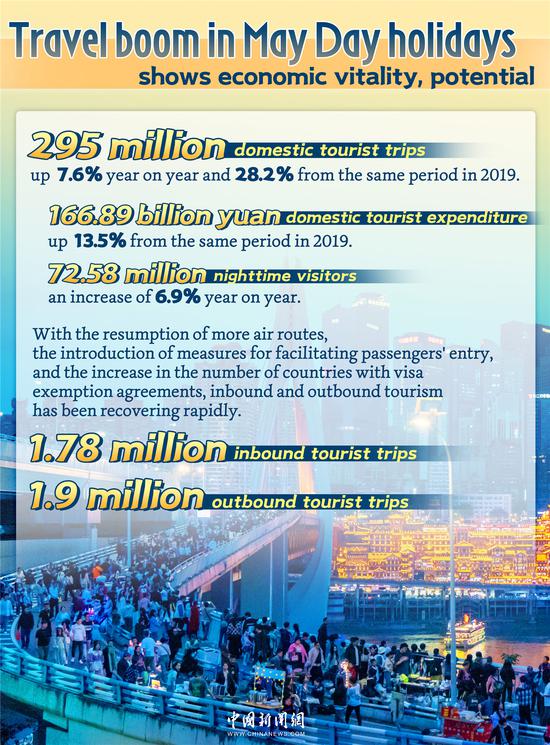
In Numbers: Travel boom in May Day holidays
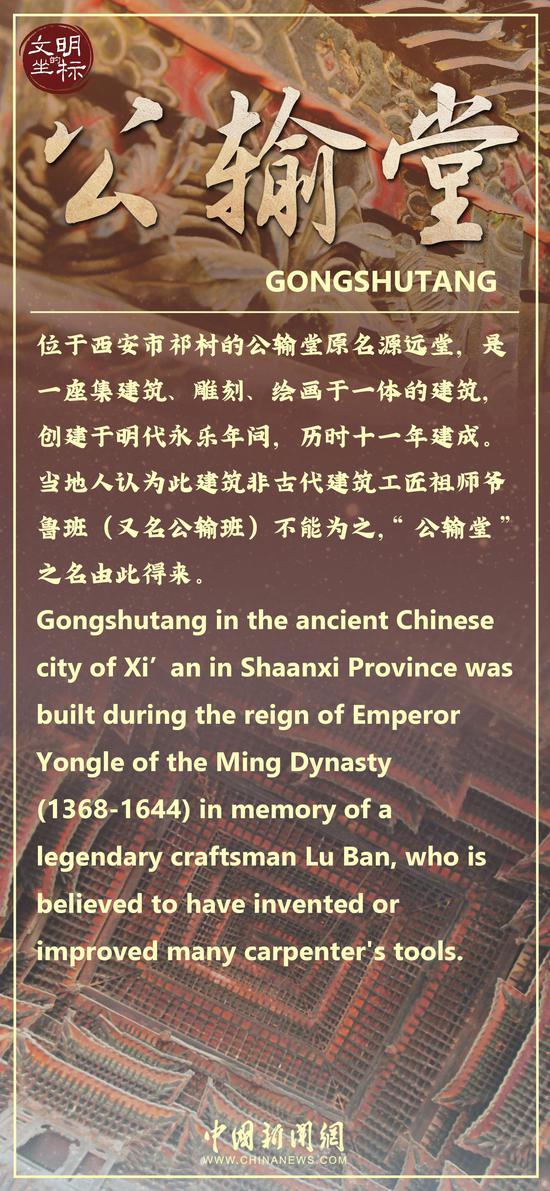
Cradle of civilization: Gongshutang
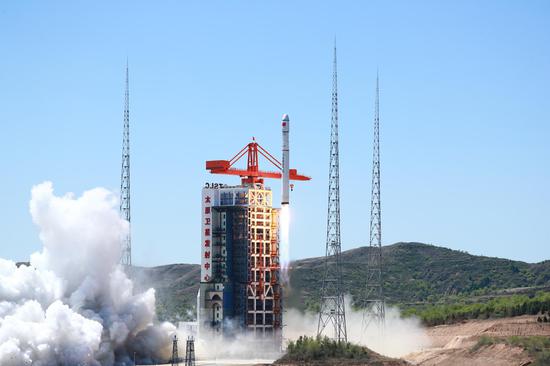
China's Long March-6C rocket completes maiden flight
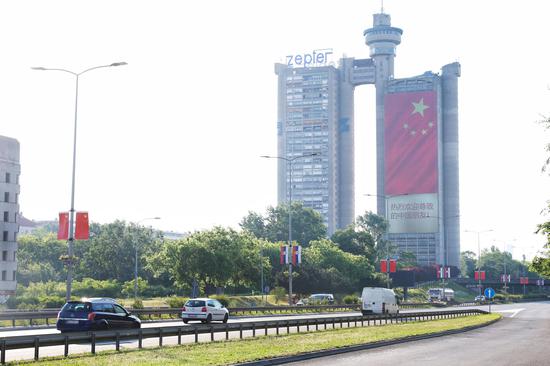
Serbia ready to welcome Chinese friends

Culture Fact: Ancient book witnesses China-France cultural exchanges

Culture Fact: Chinese, French experts collaborate to restore ancient building

Xi receives warm welcome upon arrival in Paris
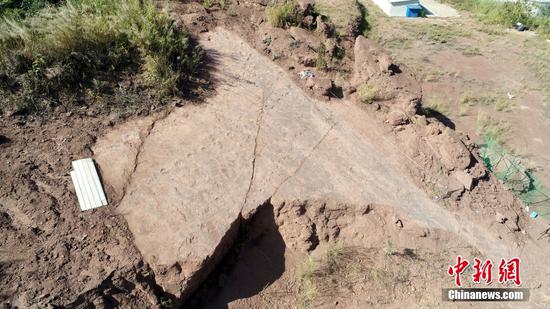
World's largest deinonychosaur footprints found in E China

'Tidal trees' appear on E China wetland

Xi, Macron hold talks in Paris

Xi attends closing ceremony of the sixth meeting of China-France Business Council with Macron

Xi attends welcome ceremony held by Macron

Xi, Macron jointly meet the press
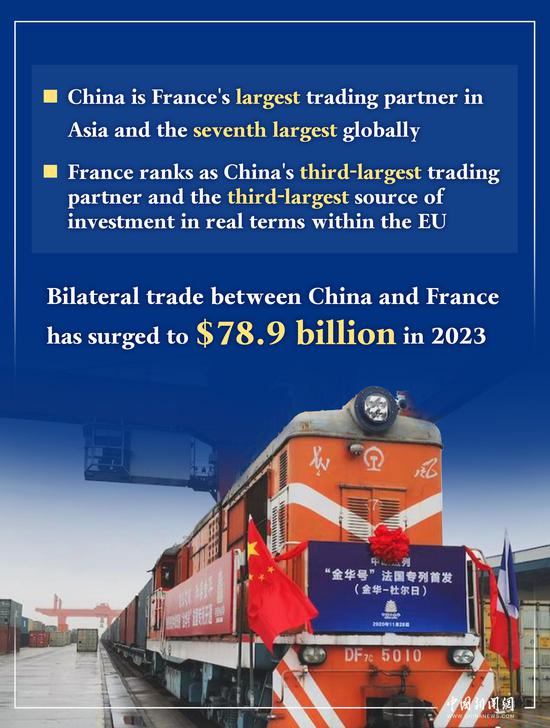
In Numbers: Highlights of China-France relations
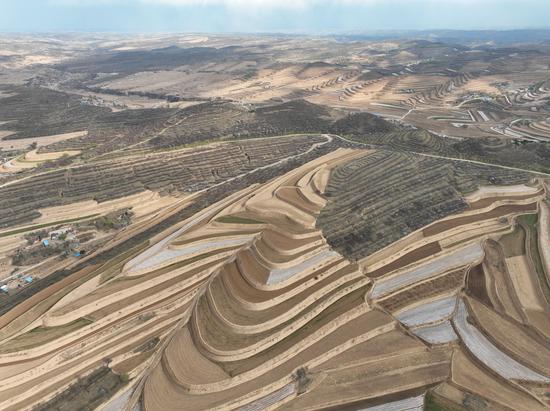
Spectacular terraced fields on loess plateau

Zemun-Borca Bridge in Serbia showcases friendship between two countries

China regains Thomas & Uber Cup
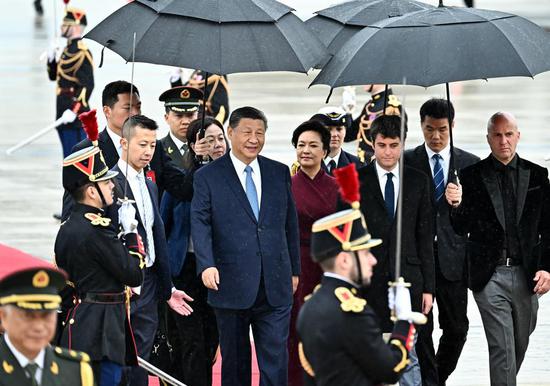
Xi arrives in Paris for state visit to France
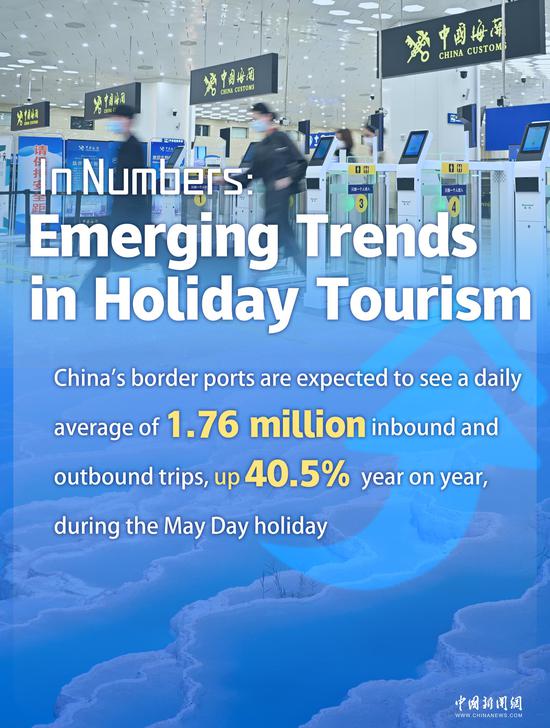
In Numbers: Emerging Trends in Holiday Tourism

Insights | Nobel laureate: China climate policies promote EV success

First batch of images captured by China's Einstein Probe satellite released

Traditional Yingge folk dance staged in Hong Kong

Azalea flowers bloom in mist-shrouded mountain in C China

In Numbers: China's online literature users exceed 500 million

China's Shenzhou-17 astronauts to return to earth on April 30

Zangke River bridge successfully connected in Guizhou

Themed show showcases costumes unearthed from archaeological sites in Beijing

138-year-old pear tree in full blossom in NE China
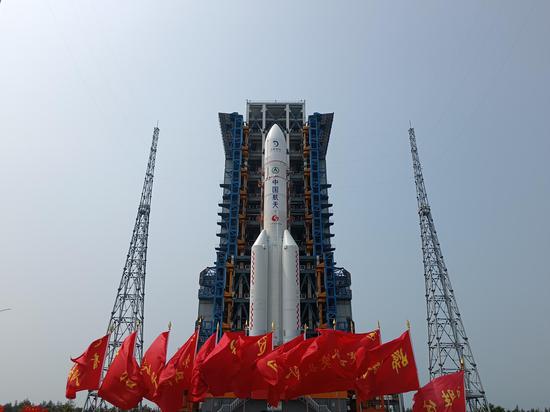
China's Chang'e-6 lunar probe ready to launch

International Horticultural Exhibition 2024 Chengdu opens to visitors
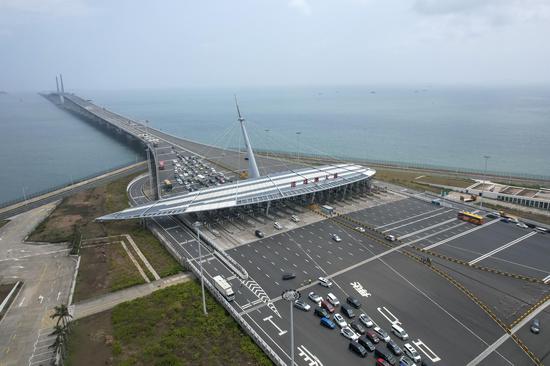
Hong Kong-Zhuhai-Macao Bridge receives over 10 mln vehicles

Olympic flame handover ceremony marks transition from Greece to Paris 2024

World's first cable-stayed bridge in alpine canyon landscape

China successfully launches Shenzhou-18 crewed spaceship
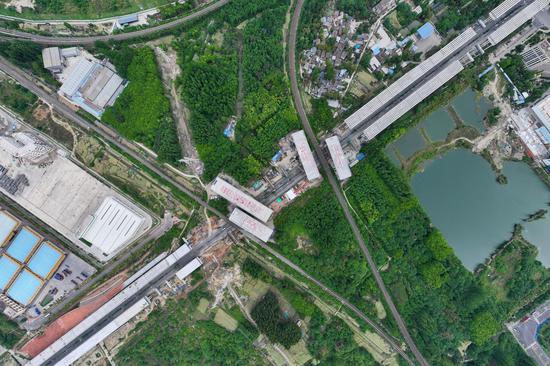
Four swivel bridges rotate into place in Sichuan
Most popular in 24h, more top news.
- Economy poised for steady rebound
- Putin begins 5th term as Russia leader
- Sources: Tesla plans to test its 'robotaxi' in China
- Highlights of the four joint statements released by China and France during President Xi's state visit
- Two dead, 21 injured following a stabbing incident at a hospital in SW China

China's Long March-6C rocket makes maiden flight

Insights丨China-EU relations: steady progress for mutual benefit and global expectations

We've detected unusual activity from your computer network
To continue, please click the box below to let us know you're not a robot.
Why did this happen?
Please make sure your browser supports JavaScript and cookies and that you are not blocking them from loading. For more information you can review our Terms of Service and Cookie Policy .
For inquiries related to this message please contact our support team and provide the reference ID below.

IMAGES
VIDEO
COMMENTS
When submitting a Taiwan work visa application, you must have the following documents: Completed Work Visa Application Form, printed and signed. Two passport-size pictures, taken within the past six months. They must have a white background without any patterns. Dimensions must be 35mm by 45mm without a border.
VOLUNTEER WORK VISA / PERMIT REQUIREMENTS FOR TAIWAN. Travel in Taiwan is simple for people from the majority of countries. Citizens of Canada, the US, the European Union (EU), the UK, Australia. New Zealand, Japan, and South Korea are able to enter the country for 90 days. This is a visa-on-arrival and all you have to do is fill out a form ...
Citizens of more than 66 countries and territories are eligible for visa-exempt entry for a period of 30 or 90 days. In addition to about 1,100 kilometers of conventional railway lines, Taiwan has a 350-km high-speed rail system along its west coast. The high-speed trains allow travel between Taipei and Kaohsiung in 94 minutes.
Call us in Washington, D.C. at 1-888-407-4747 (toll-free in the United States and Canada) or 1-202-501-4444 (from all other countries) from 8:00 a.m. to 8:00 p.m., Eastern Standard Time, Monday through Friday (except U.S. federal holidays). See the State Department's travel website for the Worldwide Caution and Travel Advisories.
Taiwan work visa. A Taiwan work visa allows individuals not currently living in Taiwan to travel to Taiwan for employment. The key can be used for a single entry or multiple entries, and may last from three months to one year. Taiwan work visa requirements include submitting an application and other required documents to the Taiwanese Bureau of ...
Applying for a Taiwan work visa at a Taiwan diplomatic mission. If you are applying for a Taiwan work visa from abroad, you have the option of obtaining your visa from a diplomatic mission (i.e. embassy, consulate, etc). You must submit the requisite documents along with a completed and signed copy of the Taiwan Work Visa Online Application ...
Study, work and visitor visas for Taiwan. If you plan to go to Taiwan to work, ... Opportunities also exist for citizens of many of the same countries covered by visa-free travel to apply for a visa under Taiwan's Working Holidays Scheme, targeted at those between the ages of 18 and 30. For stints of up to 12 months, the scheme permits the ...
EZ Work Taiwan. Foreign Professionals to Work in Taiwan The area provides necessary information for foreign professionals to work in Taiwan. The approved works that foreign professionals can apply for include 7 categories such as : A. Specialized or Technical Works, B. The Director or Manager of an Approved Business Invested or Established by ...
The Taiwan work visa application must include the following documents: Passport that is valid for a minimum of six months after entry. Two passport-sized color photographs with a white background that were taken within the last six months. Approved work permit. Health certificate issued within the past three months.
For residents, long-term visitors and anyone who work in Taiwan, opening a Taiwanese bank account is a must thing to do. Bank accounts involve various forms of financial deeds, from essential ones like receiving and making payments to more complicated ones like starting a business. ... If you enter Taiwan with a resident visa, you must apply ...
Please notice that the information you fill in online, including Surname, Given Name, Date of Birth, Passport No., Nationality and Sex, must completely match the information on your travel document; otherwise, your eVisa will be invalid. If you have applied for an eVisa recently, please make sure your eVisa has been successfully issued. If you ...
Taiwan Visas and Entry Requirements. U.S. citizens seeking entry as tourists or visitors are required to present a valid passport that will remain valid for the period of intended stay. You must also possess a confirmed return or onward air ticket. As a U.S. passport holder, you will be allowed to enter Taiwan without a visa for up to ninety ...
A long-stay visa for Taiwan is called a Resident Visa, and includes the Taiwan Work Visa, Taiwan Student Visa, and Taiwan Family Reunion Visa, among others. So, in a nutshell: Some countries are exempt from Taiwan visas for short-term stays (Visitor Visa), but everyone needs a long-term Taiwan visa (National Visa). ... Taiwan visa-free travel ...
A Taiwan visitor visa issued to a Thai citizen by Taipei Economic and Cultural Office in Macau Visa sample of Taiwan. Visitors to the Republic of China (Taiwan) must obtain a visa or authorization in advance, unless they come from one of the visa exempt countries or countries whose nationals are eligible for visa on arrival. All visitors must hold a passport valid for 6 months (except citizens ...
How to apply for the visa: Step 1: Go to the Taipei Representative Office in the EU and Belgium to submit the following documents IN PERSON: 1. A completed and signed visa application form for the working holiday program ( https://visawebapp.boca.gov.tw) 2. Luxembourgish passport valid for at least fifteen months from the day the visa is issued ...
Start your application by navigating to the Taiwan Ministry of Foreign Affairs website. Step 1: Click "New" under the "eVisa Applications" box. Step 2: Read through the requirements and confirm. Step 3: Enter your nationality, passport number, and email address.
Volunteer in Taiwan - Join now the world's leading community for volunteering, working and cultural exchange. ... If you are planning to visit Taiwan solely as a volunteer and not as a tourist you will need the correct visa. To find out more information you need to contact the embassy in your home country before travelling. ... of activities ...
VOA is officially referred to as a "Landing Visa". The visa is free of charge and valid for 30 days. Temporary and emergency passport holders from visa-exempt countries are also eligible to obtain VOA in Taiwan. These passport holders have to pay a visa fee of 1,600 TWD and 800 TWD handling fees.
If you plan to stay in Taiwan for longer than 180 days, you must have a visa before you arrive. If you stay beyond the time given on your visa, you will get a fine and risk being deported from Taiwan.
When to Apply. The American Institute in Taiwan may accept applications for an H, L, O, P, or Q visa up to 90 days in advance of applicants' beginning of employment status as noted on the Form I-797, Notice of Action. These applicants (except for H-2A applicants) can only use the visa to apply for U.S. entry starting ten days before the ...
If you're 18 to 35 (18 to 30 in some countries), come work and travel in Canada through International Experience Canada (IEC)! It's a government program designed to help you. gain valuable international work experience. improve your language skills in English and French. work in Canada and fund the trip of a lifetime.
For our detailed analysis, go directly to 50 Digital Nomad Visa Countries in 2024. 10. South Korea. Visa Validity: 2 Years. The South Korea remote work visas, such as the Workcation Visa and the ...
As China announced the extension of its visa-free policy for 12 countries until the end of 2025, analysts noted that the measures will significantly boost inbound tourism, which also demonstrate ...
Travelers can stay for a maximum of 30 days at a time under the rules. The temporary extension follows the success of the initial waiver in November last year. Indian and Taiwanese tourists are ...